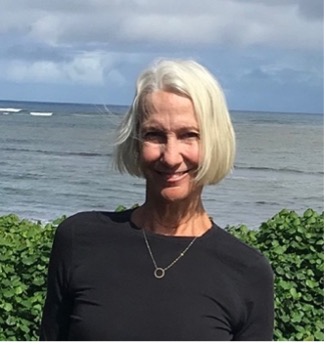Nā Hōkū
Nā Hōkū means: illuminating innovators, navigators and inspiring teachers.
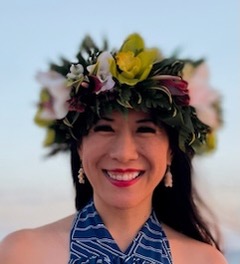
🌿Leilani Soon will open the Summit with a dance.🌿
Leilani Soon will be opening our summit with a welcome chant and a hula kahiko (ancient hula) honoring King David Kalākaua in whose honor the Merrie Monarch Festival and Hula Competition are held every year on Hawaiʻi Island. As a Native Hawaiian, professional dancer and pageant queen Leilani Soon treasures our precious Hawaiian culture and seeks to share it in authentic ways with people around the world. Lei has graced and represented Hawai’i on multiple local, national and international stages. She graduated cum laude with a BA in Teaching ESL and a minor in communications. Lei speaks Korean and Mandarin and loves to create bridges of connection between cultures. She directed and led the artistic delegation representing Hawai’i at the Chengdu Youth International Sister City Music Festival from 2013-2018 and directed the most recent 2023 tour. She is also very active at New Hope Oʻahu where she is a worship sign dance instructor and dancer. Lei is a former Narcissus Second Princess, Miss Hawaiʻi Chinese Queen, Miss Talent at the Miss Chinatown USA Pageant, Miss Hawai’i International (now known as Miss International Hawai’i) and Mrs. Hawai’i Globe 2024. She is a former flight attendant for Hawaiian Airlines and ran for Hawai’i State Senate District 10 (from Kaimukī to Ala Wai) in 2022.
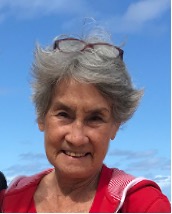
C. Malina Kaulukukui
We are heartbroken 💔 that our beloved colleague and friend C. Malina Kaulukukui, MSW, cannot attend the Summit due to illness. Our love and aloha is with her, and we know that her spirit will be with us throughout the Summit. Malina retired from the Myron B. Thompson School of Social Work, University of Hawai`i at Mānoa in 2015, where she focused on behavioral health and cultural programming for MSW students. She’s assisted the University of Hawai’iʻs John A. Burns School of Medicineʻs Native Hawaiian Center of Excellence to develop and implement cultural immersion programs for medical students and residents. She is also a haku ho’oponopono (often described as “family therapy, Hawaiian-style”) teaching it to others who want to carry on the practice in the methodology of Mary Kawena Pukui. She has been dancing hula all of her adult life and is a respected kumu hula. Since her retirement, Ms. Kaukukukui has been teaching hula at the Hawai‘i womenʻs prison, using her professional background in substance disorder and trauma-informed care to help the incarcerated embrace hula as a cultural tool for healing.
Norm Hewitt
We are also heartbroken 💔 that Norm, another cherished friend and colleague, cannot participate in the Summit because he is battling ALS (amyotrophic lateral sclerosis). We believe Norm will also be with us in spirit and will show the moving documentary Making Good Men about his transformation from wounded bully to peace loving gentle teacher. Norm was born and raised in the Hawkes Bay, Aotearoa. Of Māori descent, he affiliates to Ngāti Kahungunu and Ngāti Tūwharetoa. He is known as an outstanding rugby player and member of All Blacks team. He was beaten as a child and molested as a teenager, he turned to drugs alcohol and became very angry. Rugby gave him a place to expel this anger to address the trauma he suffered. He made a public apology after a drunken incident in 1999. Norm went from being hostile and aggressive to an outspoken advocate of peace and service for others. In 2005 he and won season one of Dancing with the Stars. He donated his winnings to literacy charity Duffy Books in Homes. Norm is featured in a documentary showing how trauma and abuse can lead to harmful behavior, and the healing value of restoring relationships. Making Good Men tells Norm’s moving story of making amends with his former childhood schoolmate Manu Bennett.
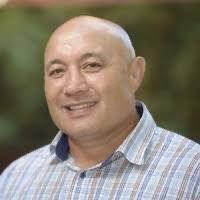
The Summit is an opportunity for us to engage, share and help through simple tools like “the power of the cup of tea” that restoration and healing must come from a place of aroha. I see you, I know you, I care for you ❤️.
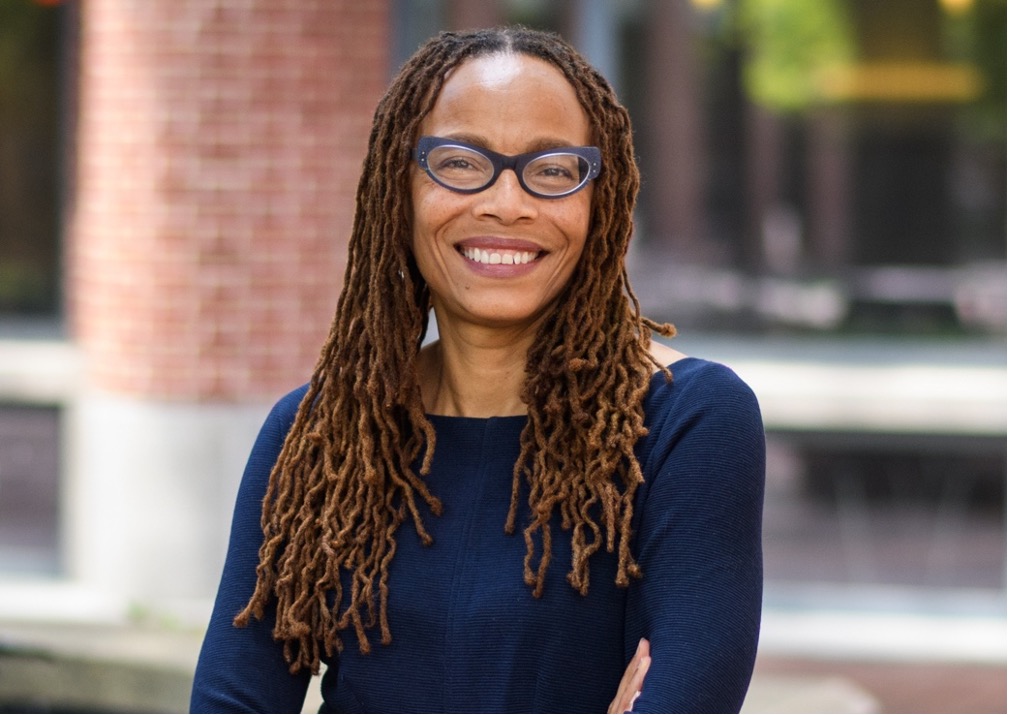
I find that the way we think about social relationships, problems, and issues in the United States is limited. It expands your way of thinking when you spend time learning about the history and experiences of people in other societies and engaging with them. This summit can help promote that expansion.
Dorothy Roberts
Dorothy Roberts is the George A. Weiss University Professor of Law & Sociology at the University of Pennsylvania, with joint appointments in the Departments of Africana Studies and Sociology and the Law School, where she is the inaugural Raymond Pace and Sadie Tanner Mossell Alexander Professor of Civil Rights. She is also founding director of the Penn Program on Race, Science & Society. An internationally acclaimed reproductive justice scholar and activist, she is the author of the award-winning Killing the Black Body: Race, Reproduction, and the Meaning of Liberty (1997); Shattered Bonds: The Color of Child Welfare (2001); Fatal Invention: How Science, Politics, and Big Business Re-create Race in the Twenty-First Century (2011); and Torn Apart: How the Child Welfare System Destroys Black Families—and How Abolition Can Build a Safer World (2022), as well as more than 100 articles and essays in books and journals, including “Race” in the 1619 Project book. Recent recognitions of her work include elections to the American Academy of Arts and Sciences, American Philosophical Society, and National Academy of Medicine; Rutgers University-Newark Honorary Doctor of Law Degree; Juvenile Law Center Leadership Prize; Abortion Liberation Fund of PA Rosie Jimenez Award; New Voices for Reproductive Justice Voice of Vision Award; Society of Family Planning Lifetime Achievement Award; and American Psychiatric Association Solomon Carter Fuller Award.
Mimi Kim
Mimi Kim is the founder of Creative Interventions and a co-founder of INCITE! She has been a long-time activist, advocate and researcher challenging gender-based violence at its intersection with state violence and creating community accountability, transformative justice and other community-based alternatives to criminalization. As a second generation Korean American, she locates her political work in global solidarity with feminist anti-imperialist struggles, seeking not only the end of oppression but of the creation of liberation here and now. Mimi is also an Associate Professor of social work at California State University, Long Beach and Co-Editor-in Chief of Affilia. Her recent publications include “The Carceral Creep: Gender-Based Violence, Race, and the Expansion of the Punitive State, 1973-1983” (2020) and “From Carceral Feminism to Transformative Justice: Women of Color Feminism and Alternatives to Incarceration” (2018). She is currently working on a non-law enforcement restorative justice pilot project addressing domestic and sexual violence in Northern California.
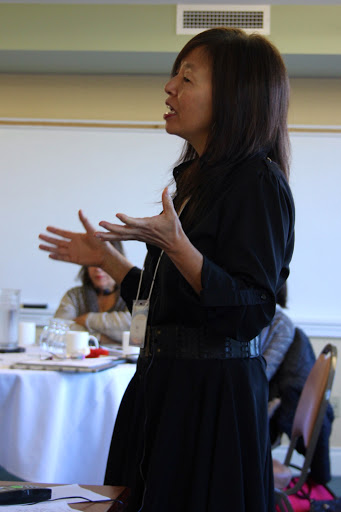
In the spirit of alignment and attunement, we have the opportunity and responsibility to lean in with heart and intelligence to generate new possibilities.
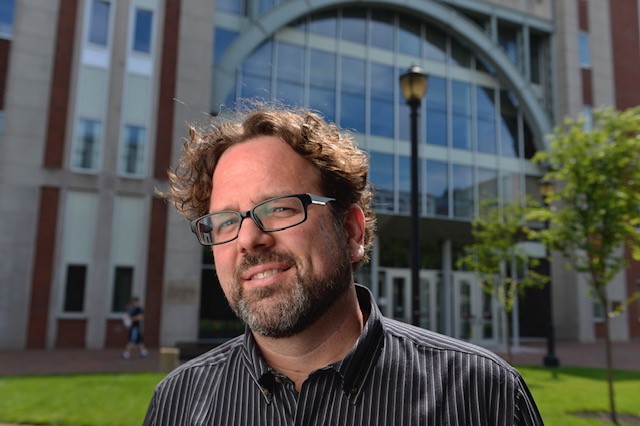
What could be more restorative than bringing together all of the most important innovations in justice thinking of the past three decades into one big circle, in Hawaii of all places, where there is so much to learn about peacemaking practices. The generative synergies that will emerge from a coming together like this are going to be immense. I can’t wait.
Shadd Maruna*
Shadd Maruna is a Professor of Criminology at Queen’s University Belfast and the President of the American Society of Criminology. His book Making Good: How Ex-Convicts Reform and Rebuild Their Lives was named the Outstanding Contribution to Criminology. He has published widely on restorative justice, rehabilitation, prisons, and desistance from crime. Previously, he has worked at the University of Cambridge, the State University of New York at Albany, and Rutgers University where he was the Dean of the School of Criminal Justice. His most recent study was a peer-led participatory action research project across ten prisons in England exploring the impact of the Covid-19 lockdown on the mental health and well-being of over 1500 prisoners.
Tshepo Madlingozi
Tshepo Madlingozi is the Director of the Centre for Applied Legal Studies at WITS University [University of the Witwatersrand Johannesburg], and an Associate Professor at the School of Law of the same University where he teaches Social Justice and Human Rights. He holds Master’s degrees in both Law and Sociology, and he received his PhD degree from Birkbeck, University of London. He is a Research Associate at the Chair for Critical Studies in Higher Education at Nelson Mandela University, a Visiting Professor at the International Institute of Social Studies of Erasmus University Rotterdam, and a Faculty Member at the Vienna Master of Arts in Applied Human Rights. He is a co-editor of South African Journal on Human Rights. He is a co-editor of Symbol or Substance: Socio-economic Rights in South Africa (Cambridge UP) and a co-editor of Introduction to Law and Legal Skills in South Africa, 2nd Edition (Oxford UP South Africa). He sits on the boards of numerous civil society organizations. Between 2021 and 2022, Tshepo was appointed Chief Panellist for the South African Human Rights Commission Enquiry into Racial Discrimination and other forms of Discrimination in Advertising. For 13 years, he worked with and for Khulumani Support Group – the social movement of victims and survivors who suffered gross violations during colonial-apartheid.
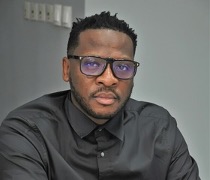

Restorative justice is more than a criminal justice practice. It is an ethos and a social justice international movement that can address power abuse at all levels. The RJ4All International Institute is honoured to be supporting this timely event aiming to spark a much needed debate focusing on marginalised communities. We will be supporting the organisers in their long-term plans to bring about systemic change, and we encourage practitioners, researchers and the public to participate in this unique conference.
Theo Gavrielides
Professor Theo Gavrielides, PhD, is a legal philosopher and an international expert in restorative justice and human rights. He is the Founder and Director of the Restorative Justice for All (RJ4All) International Institute, which aims to advance community cohesion and redistribute power through the values of restorative justice. He is also the Founder and Editor-in-Chief of RJ4All Publications, which is the publishing arm of RJ4All. He also founded RJ4All Sports, the fitness arm of RJ4All. He is an advisor to the European Commission’s security programmes, and the coordinator of a number of EU funded research projects on violent radicalisation, migration, restorative justice, youth and human rights.
Jennifer Llewellyn
Jennifer Llewellyn is Professor of Law, Chair in Restorative Justice and Director of the Restorative Research, Innovation and Education Lab at the Schulich School of Law, Dalhousie University in Nova Scotia, Canada. She is a Fellow of the Royal Society of Canada. Her research, teaching and work focuses on relational theory, restorative justice, truth commissions, peacebuilding, international and domestic human rights. Professor Llewellyn has supported governments, NGO’s and communities in Canada and internationally on the implementation of a restorative approach for justice and social transformation across a range of systems and sectors including justice, education, and community and social services. From 2015-2019 she served as a Commission for the Nova Scotia Home for Colored Children Restorative Inquiry the first restorative public inquiry in Canada.


I think it’s so important to create opportunities for us to reflect on what’s working and what’s not, for whom and why in justice system programs. This kind of thoughtful analysis of practice and research can help us to better understand and improve innovative justice programs.
Carrie Petrucci
Carrie Petrucci, MSW, Ph.D. has been an evaluation researcher for over 20 years. Most of her evaluation work has focused on criminal justice and social welfare programs in addition to academic support programs for low-income community college students. She began studying therapeutic jurisprudence for her dissertation research in which she evaluated a domestic violence court with a judge who utilized therapeutic jurisprudence. This is also when she wrote her first critical review of the apology research. She has since published a follow-up article on apology, updating her original critical review. She has also published articles and several chapters on therapeutic jurisprudence. She is Adjunct Faculty at Alliant International University’s Irvine campus where she teaches statistics in their Psychology Doctorate Couple and Family Therapy Program. She was formerly a child protective services worker in Los Angeles and a community corrections program director in San Francisco. Her publications include qualitative and quantitative analyses in peer-reviewed and law journals including Family Court Review, Community College Journal of Research and Practice, Oñati Socio-Legal Series, Transportation Research Circular, Victims and Offenders, Journal of Social Service Research, The Journal of Law, Medicine, and Ethics, Washington University Journal of Law and Policy, Behavioral Sciences and the Law, Criminal Law Bulletin, and Brief Treatment and Crisis Intervention.
Sonya Shah
Sonya Shah initiated the Ahimsa Collective in January 2016. She has 20 years experience in social justice education and 10 years experience in restorative justice. She is an associate professor at the California Institute of Integral Studies. She has trained hundreds of facilitators in trauma healing and restorative justice practices across the U.S. She’s worked closely with survivors of violent crimes, people who have committed violence, families impacted by violence. Central to her core values are creating belonging and beloved community in every aspect of her work and life, and balancing her relationship to self, others, the community and nature. She is a first-generation immigrant from the Northwestern part of India. She speaks at national conferences, colleges and on the radio, and occasionally writes short articles on the Huffington Post.


The conference aims to bring together practitioners, scholars, and experts who work on various justice approaches, with the goal of moving beyond the silos of our work.
Ram Tiwari
Ram Tiwari is the Founder and Chair of the Nepal Forum for Restorative Justice, through which he has worked to introduce and establish restorative justice systems in Nepal. Ram has an experience of working with Nepal’s maiden projects on restorative justice in both formal-judicial and community systems and have introduced it into the country’s transitional justice processes especially focusing on community-based reconciliation and reparation programs. As the member of Nepal’s first-ever Restorative Justice Development Committee headed by Supreme Court Justice of Nepal, he was involved in producing a national curriculum on restorative justice, a milestone in the field in Nepal. Working with various grassroots organizations, he has also developed training manuals and publications on community restorative justice, healing, reparation and transitional justice. In addition to this, he possesses an experience on working with a United Nations with its expert Committee to review the United Nations Handbook on Restorative Justice Programmes. He also worked as a member of the Restorative Justice Working Group at the OJJDP, Office of Justice Programs, Department of Justice in the US, and as an International Expert on Restorative and Transitional Justice for the UN Office in Somalia.
Fania E. Davis
Fania E. Davis is a leading international voice on the intersections of racial and restorative justice. She is a long-time social justice activist, civil rights trial attorney, author, and educator with a PhD in Indigenous Knowledge. Davis came of age in Birmingham, Alabama during the social ferment of the civil rights era. These formative years, particularly the murder of two close childhood friends in the 1963 Sunday School bombing, crystallized within Fania an enduring commitment to social transformation. For the next decades, she was active in the Civil Rights, Black liberation, women’s, prisoners’, peace, anti-racial violence, economic justice and anti-apartheid movements. Apprenticing with African indigenous healers catalyzed Fania’s search for a healing justice, ultimately leading her to serve as Founding Director of Restorative Justice for Oakland Youth and Co-Founding Board Member of the National Association of Community and Restorative Justice. Her numerous honors include the Lifetime Achievement award for excellence in Restorative Justice, the Black Feminist Shapeshifters and Waymakers’ award, the Tikkun (Repair the World) award, the Ella Jo Baker Human Rights award, and the Ebony POWER 100 award. The Los Angeles Times named her a New Civil Rights Leader of the 21st Century. She recently received the Open Society Foundations Justice Rising Award recognizing 16 Black movement leaders working towards racial justice in the United States. Among Davis’ publications is the Little Book of Race and Restorative Justice: Black Lives, Justice, and U.S. Social Transformation Davis, who resides in Oakland, CA., writes and speaks internationally on restorative justice, racial justice, truth processes and indigeneity. She is a mother, grandmother, dancer, meditator and a yoga, qigong and African spirituality practitioner.
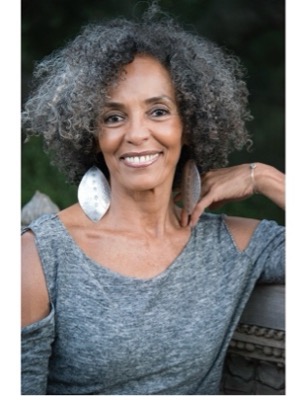

This gathering offers a unique and very timely opportunity to bring together leading voices from an array of disciplines across the globe. all of whom are engaged in meaningful and impactful work in the areas of conflict transformation, harm reduction, and community building. By coming together and engaging in deep dialogue with each other, we can further our shared goals and aspirations toward improving justice and equity along with promoting healing, wellbeing, and liberation at the personal, interpersonal, and systemic levels.
Susan Brooks
Susan Brooks has 30 years of experience as an educator, creative scholar, facilitator, and presenter in the areas of experiential and community-based learning, professional development, cross-cultural communication, and conflict transformation. Since 2007 she has been a Professor at Drexel University’s Kline School of Law in Philadelphia and served as the school’s inaugural Associate Dean for Experiential Learning. She has established numerous university-community collaborations, including co-founding the law school’s Stern Community Lawyering Clinic, where she is currently Acting Director. Professor Brooks has devoted much of her teaching, community work, and scholarship to promoting an integrative, humanistic approach she calls “Relational” and “Wholehearted” Lawyering, which includes tools and practices to support healing, wellbeing and liberation. She was awarded a Fulbright Global Research Scholar Fellowship in 2020 to study culturally sustaining forms of conflict transformation, including restorative justice and facilitated dialogue. She is also a member of the Global Advisory Council for the International Society of Therapeutic Jurisprudence. Professor Brooks received her J.D. from New York University. She received an M.A. and B.A in clinical social work from the University of Chicago. She is a licensed attorney, mediator, trained restorative justice facilitator and circle keeper, and also a certified yoga and mindfulness teacher.
Penelope Griffith
Ms. Penelope Griffith, LICSW, is an internationally recognized trainer and facilitator in solution-focused and restorative based family group conferencing and circle processes. Her trainees include child welfare and law enforcement agencies and individual workers in Toronto, Rome, Amsterdam, Lyon, Burgees, Alberta and jurisdictions across the United States. Ms. Griffith directs Collaborative Solution for Communities in Washington, DC and helped establish and lead DC’s Gang Intervention Partnership. She works with individual youth and communities to prevent retaliatory violence. She assists victims of youth violence and their families, helps re-establish and revive family and community norms despite youth violence, uses healing circles to restore relationships between offenders and victims, and increases overall capacity to implement positive youth development strategies in underserved communities.
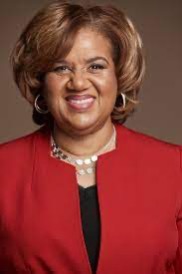
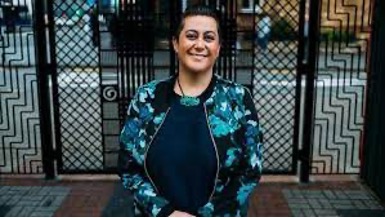
Khylee Quince
Professor Khylee Quince (Ngapuhi, Ngati Porou, Ngati Kahungungu) is the Dean of Auckland University of Technology School of Law, and the first indigenous Māori dean of any law school. She teaches and researches in criminal law, youth justice and Māori legal issues. Khylee is an applied legal academic, providing expert advice and professional development across the public and private sectors and the legal profession for practitioners and judges. She has been a member of the New Zealand Parole Board and chair of the New Zealand Drug Foundation. In 2014, Khylee was awarded a national tertiary teaching excellence award for sustained excellence, and in 2017 was a finalist in the Public Policy category of the New Zealand Women of Influence Awards. She is currently Chair of the Commission on Episcopalian Leadership for the Mihinare Maori Anglican Church of Aotearoa and is Chair of the $2m Understanding Policing Delivery Project commissioned by the New Zealand Police as an inquiry into systemic bias in policing in Aotearoa.
Kay Pranis
Kay Pranis is a national leader in restorative justice, specializing in peacemaking Circles. She served as the Restorative Justice Planner for the Minnesota Department of Corrections from 1994 to 2003. Before that, she worked six years as the Director of Research Services at the Citizen’s Council on Crime and Justice. She has written and presented papers on peacemaking Circles and restorative justice worldwide. Since 1998, Kay has conducted Circle trainings in a diverse range of communities—from schools to prisons to workplaces to churches, from rural farm towns in Minnesota to Chicago’s South Side. Kay has been working with Circles since 1996, helping to implement Circles in the adult and juvenile justice systems, schools, social services, workplaces, neighborhoods, mediation programs, churches and families. She has used Circles for conflict resolution and for community building in government agencies, community non-profits and universities. Kay is one of the co-founders of Living Justice Press and has served on LJP’s board since its incorporation in 2002. For eight years, she also served as LJP’s Board Chair. Indeed, her work on the peacemaking Circle process and the shared desire to make the Circle work more broadly available were the motivations for founding LJP. Her book, coauthored with Judge Barry Stuart and Mark Wedge, entitled Peacemaking Circles: From Crime to Community, has become a core textbook and resource on the peacemaking Circle process. Now in multiple reprints, Peacemaking Circles has been translated into Ukrainian.
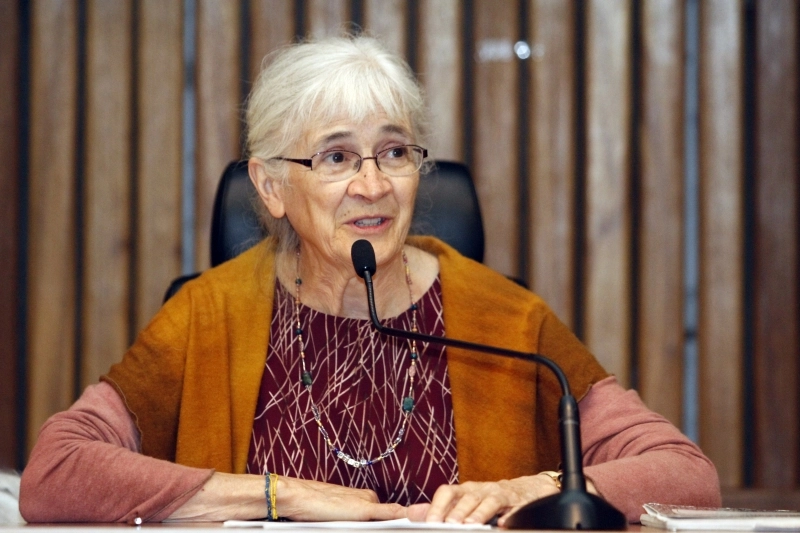
For those of us involved in the restorative justice movement I believe it is increasingly important to recognize synergies with other movements and initiatives that share the larger vision of our work, but may come from different analyses, perspectives and strategies. Collectively we have gained significant momentum and visibility. Intentionally bringing the various movements together without imposing any single framework on others can strengthen and deepen our work.
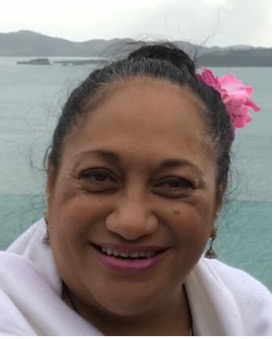
Jacques Puriri-Kaitapu
Jacques Puriri-Kaitapu is from Ngati Kahungunu, Rongomaiwahine, Aotearoa and Manager of Āmaia Te Rongo (Navigating Peaceful Resolutions) Restorative Justice for Ngati Whatua Orakei Marae, Tamaki Makaurau who are in partnership with the Ministry of Justice, New Zealand Police and Department of Corrections. Her Maori peacemaking experience connects to other Iwi and marae across Tamaki Makaurau and throughout Aotearoa, which also include Te Pae Oranga Services (Iwi Community Panels), Hoake Community Driver Mentors and Driver License Training Programme, Whanau Ora Services, Restorative Justice Family Violence Facilitator (Ministry Of Justice, Specialist Endorsed Family Violence Accredited), Te Pae Oranga Facilitator (NZ Police Trained), Hoake Driver Training Programme (Ministry of Social Development and Whai Maia), and Whanau Ora Navigation Programme (Ministry of Social Development and Whai Maia). Jacques is a Maori Caucus representative and national board member of Restorative Practices Aotearoa, but her most important roles today is being a mother to Meka, Truth, and Tawhiao, and nanny of four beautiful mokopuna with another one on the way.
Robert Yazzie
The Honorable Robert Yazzie served as the Chief Justice of the Navajo Nation from 1992 through 2003. He practiced law in the Navajo Nation for 16 years, and was a district judge for eight years. He currently teaches Navajo Law at the Navajo Technical University. He was the Director of the Diné Policy Institute of Diné College (Navajo Nation), developing policy using authentic Navajo thinking. He is the author of articles and book chapters on many subjects, including Navajo peacemaking, traditional Indian law, and international human rights law. He is a visiting professor at the University of New Mexico School of Law, an adjunct professor of the Department of Criminal Justice of Northern Arizona University and a visiting member of the faculty of the National Judicial College. He recently taught Navajo law at the Crownpoint Institute of Technology. Chief Justice Yazzie continues a career devoted to education in formal participation in faculties, lectures and discussions of traditional indigenous law at various venues throughout the world. He has a global audience and he has frequently visited foreign lands to share his wisdom about traditional indigenous justice and governance.
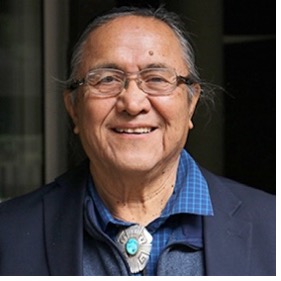
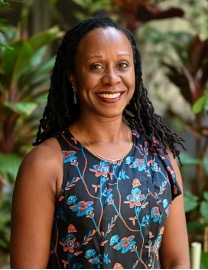
Camille A. Nelson
Camille A. Nelson is a distinguished academic and currently serves as the Dean and Professor of Law at the University of Hawai’i at Mānoa, William S. Richardson School of Law. She has long had an interest in justice and healing innovations. With a background in leadership and management roles, she has previously served as Dean of American University Washington College of Law and Dean of Suffolk University Law School. Dean Nelson’s scholarly focus is in health law, criminal law and procedure, comparative law, and leadership, emphasizing cultural studies, critical race theory, and DEI. She has made significant scholarly contributions, including publications in the Berkeley Journal of Criminal Law and the Yale Journal of Law & Feminism. Dean Nelson has received numerous accolades for her work, including being recognized as one of the “Most Influential People in Legal Education” by the National Jurist. She holds a LL.M. from Columbia Law School, a JD magna cum laude from the University of Ottawa Faculty of Law, and a BA with high distinction in Administration from the University of Toronto.
Jonathan Kay Kamakawiwoʻole Osorio
Dr. Jonathan Kay Kamakawiwoʻole Osorio is Dean of Hawaiʻinuiākea School of Hawaiian Knowledge. Dr. Osorio received his PhD in history from the University of Hawaiʻi. At Kamakakūokalani, he has developed and taught classes in history, literature, law as culture, music as historical texts, and research methodologies for and from indigenous peoples. His recent publications include The Value of Hawaiʻi: Knowing the Past and Shaping the Future, which he co-edited and authored, and Dismembering Lāhui: A History of the Hawaiian Nation to 1887. He is also a composer and singer and has been a Hawaiian music recording artist since 1975.
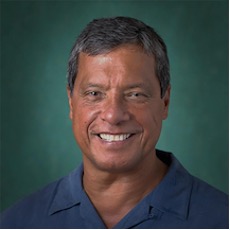

Manulani Aluli Meyer
Manulani Aluli Meyer is the fifth daughter of Emma Aluli and Harry Meyer who grew up on the sands of Mokapu and Kailua beach on the island of O’ahu. The Aluli ohana is a large and diverse group of scholar-activists dedicated to Hawaiian education, justice, land reclamation, law, health, cultural revitalization, arts education, prison reform, food sovereignty, transformational economics, and music. Manu works in the field of indigenous epistemology and its role in world-wide awakening. Professor Aluli-Meyer obtained her doctorate in Philosophy of Education from Harvard (Ed.D. 1998). She is a world-wide keynote speaker, writer, and international evaluator of Indigenous PhDs. Her book: Ho’oulu: Our Time of Becoming, is in its third printing. Her background is in wilderness education, coaching, and experiential learning and she has been an Instructor for Outward Bound, a coach for Special Olympics, and a cheer-leader for the Hawaiian Charter School movement. Dr. Aluli Meyer has been an Associate Professor of Education at University of Hawai‘i at Hilo and spent five years in New Zealand as the lead designer/teacher for He Waka Hiringa, an innovative Masters in Applied Indigenous Knowledge degree at Te Wānanga o Aotearoa, the largest Māori university with 30,000+ students. Dr. Aluli-Meyer is currently the Konohiki for Kūlana o Kapolei (A Hawaiian Place of Learning at University of Hawai‘i–West O‘ahu)Add Your Heading Text Here
João Salm
João Salm is an associate professor of criminal justice at Governors State University (GSU), Chicago. PhD in Justice from Arizona State University, US, and master’s degree in Public Administration from the Federal University of Santa Catarina, Brazil. Cofounded with Simon Fraser University professor Elizabeth Elliott the international cooperation between Canada and Brazil in the area of restorative justice in partnership with Brazilian judges and the Canadian Foreign Ministry. Consultant to the UN Peacebuilding Fund in Guinea Bisau. In 2016 he co-edited with Enzo Bello the book “Citizenship, Restorative Justice and the Environment: a dialogue between Brazil, the United States, Canada, Spain and Italy”. He served as co-organizer of “1st International Seminar on Restorative Justice and the Environment: Stimulating Dialogues About Environmental Issues.”

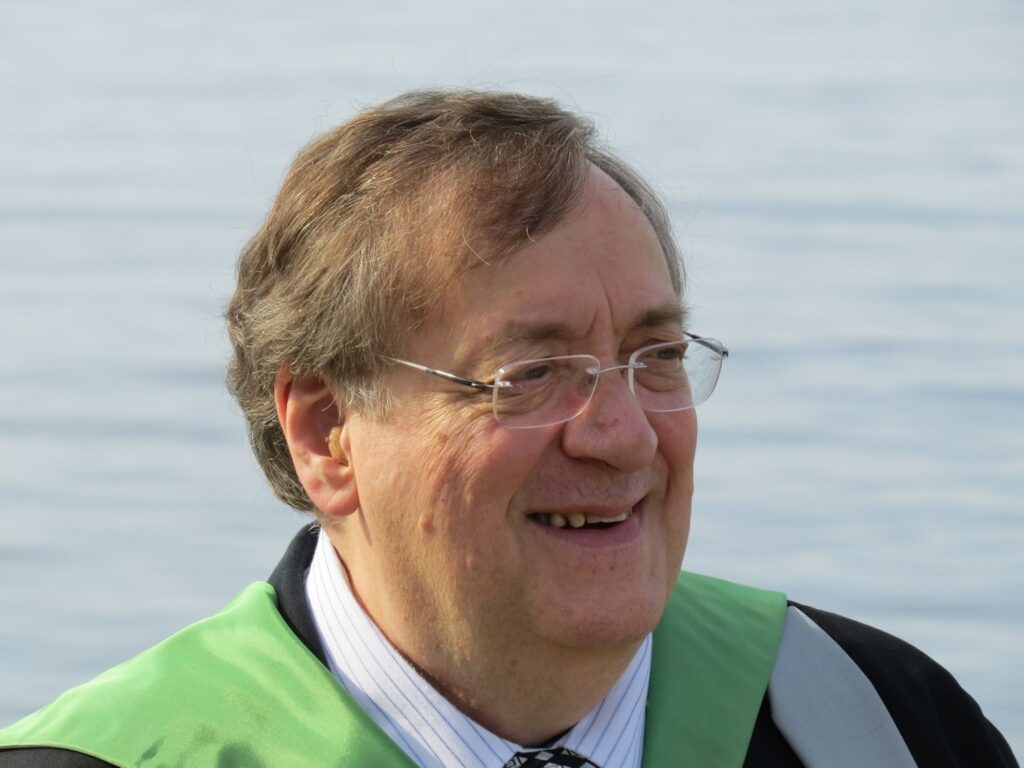
The aptly named Justice Innovations Summit 2024 sets out an ambitious and vitally needed challenge, that of holding a gathering of people who care deeply to consider how their innovations to prioritize just relations, healing, capacity building and accountability influence each other to improve all. This well-timed event, taking place as it will, in a location so historically and culturally significant to the relational justice social movement, is asking exciting, refreshing and hard questions.
Gale Burford
Gale Burford PhD, MSW is Emeritus Professor, University of Vermont. He has held full-time appointments in Social Work at Memorial University of Newfoundland, the University of Vermont, and visiting appointments at the University of Stirling in Scotland and at Victoria University of Wellington, New Zealand. Gale was awarded an Honorary Doctor of Law by Vermont Law School (2022) where he served as Distinguished Visiting Scholar of Restorative Justice (2016-2019). He was also a Distinguished Visitor at the Centre for International Governance and Justice, School of Regulation and Global Governance (RegNet) ANU College of Asia & the Pacific (2017). He has published on a range of topics, but his best-known research focuses on the use of family engagement and restorative approaches at the intersection of child protection and interpersonal violence that first grew from he and Joan Pennell’s work on the Newfoundland & and Labrador Family Group Decision Making Project. He is co-editor with John and Valerie Braithwaite of Restorative and Responsive Human Services (Routledge, 2019) and of Family Group Conferencing: New Directions in Community-Centered Child & Family Practice with co-editor Joe Hudson (Aldine, 2000/Routledge, 2017). Gale’s research has focused on restorative justice and family engagement interventions — particularly in situations of child abuse and interpersonal violence, the use of drug courts, reparative probation with adult offenders, a youth-run community living program, group care and residential treatment programs, differential treatment approaches, teamwork, and organizational change
David Moore
David Moore is the current President of the Australian Association for Restorative Justice. David has been involved with Australia’s restorative justice movement since the pilot program of group conferencing in NSW in the early 1990s. He has taught at several universities, worked in a Premier’s Department, trained facilitators and helped to establish evaluated restorative programs around Australia, North America, the UK and Scandinavia. He also worked with playwright David Williamson on his Jack Manning Trilogy of plays dramatizing the group conference process, and director Michal Rymer on the movie adaption of the play Face to Face. In recent years, David has been a principal advisor to a series of Australian redress schemes that provide restorative engagement, from the Defence Abuse Response Taskforce and National Redress Scheme, to more recent programs involving police and other emergency services, and members of the Stolen Generations. He has recently co-authored, with Alikki Vernon, the book Setting Relations Right in Restorative Practice: Broadening mindsets and skill sets (Routledge 2024).


Keyria Rodgers
Keyria Rodgers’ professional experience extends across 15 years in government and 12 years in higher education/academia. She currently is Director of Millikin University’s Criminal Justice Department, Instructor of Criminal Justice, Director of the Teen Justice Diversion Program, Grant Administrator for Adult Redeploy Illinois, Board member for the Juvenile Justice Initiative (Statewide policy agency), Board Member for Macon County CASA, Board Member for Boys and Girls Club of Decatur, founder of the Restorative Justice Global Partnership (GRJP), which includes Hawai‘i, Chicago, Decatur IL, Houston, Washington D.C., New York, Italy, London, Singapore, and Nepal and she is an independent consultant for grant writing and restorative justice training. She is also on the editorial board for RJ4All Internet Journal of Restorative Justice in London. In December 2020, Rodgers was appointed by Governor J.B. Pritzker to the Illinois Juvenile Justice Commission where she is serving a 3-year term. In May 2021, Rodgers joined the Lt. Governor Julianna Stratton’s Advancing DJJ Transformation Committee where she and her colleagues from around the state of Illinois work to transform the state’s juvenile justice system. Her research interests include public administration, public policy, criminal justice issues, reentry, social justice, expungement, diversion, deflection, restorative justice, probation, and community-based program development in the United States and around the world. As a grant writer and public manager, she creates budgets for non-profits, government agencies, independent contractors, foundations, and community-based organizations. To date, she has written grants and managed more than 7.1 million dollars in various types of funds for government and community-based programming.
Seth Weiner
Seth Weiner is a restorative justice enthusiast and advocate, originally from Los Angeles, now living in Weehawken, New Jersey with his wife and three children. He came of age around incredible peacemakers and healers who helped demonstrate to him how healing and justice can be woven together. He is inspired, nourished and humbled to serve as Director for the philanthropic circle Life Comes From It. He is a lawyer by training and has been pursuing questions about right-relationship in the face of hurt and harm for many years. He finds that there is always more to learn, more reasons to laugh, to grieve, and to stand in awe of the beauty.

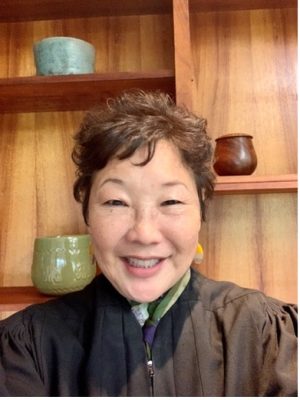
Leslie E. Kobayashi
The Honorable Leslie E. Kobayashi was nominated by President Barack Obama on April 21, 2010 and confirmed by the United States Senate as a United States District Judge in the District of Hawai`i on December 22, 2010. Prior to confirmation, Judge Kobayashi served as a United States Magistrate Judge (1999-2010) in the District of Hawai`i. She was a practicing lawyer for 16 years, first serving as a deputy prosecuting attorney for the City and County of Honolulu (1983-1984), and then in private practice where she was a trial attorney and a managing partner (1984-1999), handling a variety of matters including personal injury, business disputes, labor and employment, medical and legal malpractice, and products liability. She received her B.A. degree from Wellesley College (1979) and her J.D. degree from Boston College School of Law (1983). She has been an adjunct professor at the William S. Richardson School of Law, and served on various committees for the Ninth Circuit Court of Appeals. Judge Kobayashi is currently a member of the Ninth Circuit Jury Instructions Committee and is the Ninth Circuit District Judge Representative to the Judicial Conference of the United States.
Laurie Arial Tochiki
Laurie Arial Tochiki, JD, PhD, is the Executive Director of EPIC ‘Ohana, a nonprofit organization serving families, children and youth in the child welfare system. “EPIC” which stands for Effective Planning and Innovative Communication, reflects the organization’s goal of breaking down barriers between social workers, families, government systems and others. EPIC is the backbone organization for a network of agencies and foundations called Nā Kama a Hāloa, which seeks to improve outcomes for native Hawaiian children touched by the child welfare system. From 1999 to 2011, Laurie served as Associate Dean for Student Services at the William S. Richardson School of Law where she earned her JD degree in the fifth graduating class of the school. She currently serves as a Regent on the University of Hawai‘i Board of Regents. Laurie grew up in Waipahu and graduated from Waipahu High School. While working she earned a Ph.D in Education Policy in 2015. Laurie also earned a Masters in Administration, with an emphasis on Public Administration from the Hawaiʻi campus of Central Michigan University and has a Bachelor’s degree from Whitman College with a double major in Sociology and Psychology. In 2021 she was awarded the Casey Excellence for Children Award for Leadership from Casey Family Programs. She is a co-founder of the Kids First program at the First Circuit’s Family Court, and the family group decision making process called “`Ohana Conferencing.”
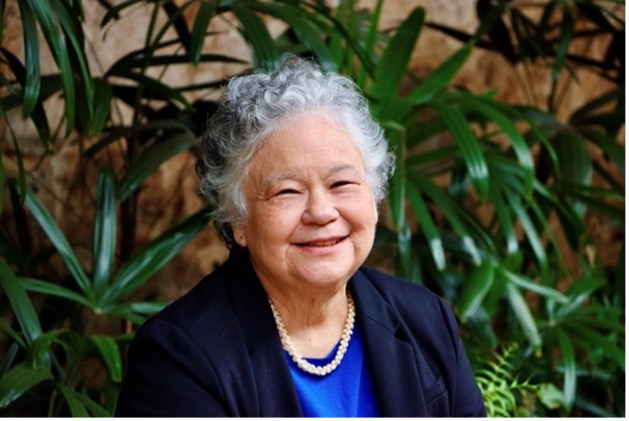
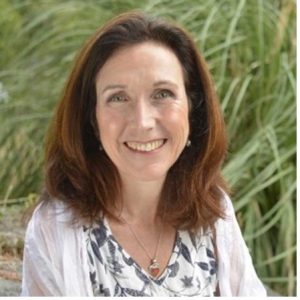
Brenda Morrison
Brenda Morrison is passionate about interdisciplinary work that develops critical and reflective praxis that frames problems of harm and justice in ways that evoke and transform individuals, communities and governance. As the Director of Simon Fraser University’s Research and Engagement Centre for Restorative Justice, her work focuses on engaging research, engaging students and engaging community in the rich relational ecology of restorative justice. She is a theoretical social psychologist with field experience in outdoor education, governance and justice. Her teaching and research interests include transformative and restorative justice, responsive regulation, school violence and safety, conflict and cooperation, shame-management and social identity, the self and self-interest. She draws on a range of theory in developing critical praxis that explores the space between us: justice, identity and belonging.
Briana Barocas
Briana Barocas, Ph.D., is the Senior Director of Research and Scholarship at New York University’s Center on Violence and Recovery and a Research Professor at the Silver School of Social Work. Her interests in trauma, resiliency, and recovery have led to research on first responders, individuals and families affected by domestic violence, and survivors of 9/11. Her research has been supported by the National Institute of Justice, the National Science Foundation, the Department of Homeland Security, and the Department of Defense. Additionally, she was the Principal Investigator on a National Science Foundation Innovation Corps (I-Corps) team to develop an online capacity-building platform for domestic violence service providers. She has two decades of experience in restorative justice applications to domestic violence practice in communities across the United States and currently serves as a member of the European Forum for Restorative Justice’s Working Group on Gender-Based Violence and Restorative Justice. Previously, Dr. Barocas was a consultant and researcher at Columbia University’s Center on Social Policy and Practice in the Workplace. She was the former Assistant Director of Cornell University’s Institute for Women and Work. Her earlier research on work-family issues and current work on the response to and recovery from violence and trauma have strengthened her commitment to developing and researching programs and services that better the lives of individuals, families, and communities. She holds a Ph.D. in Social Policy and Policy Analysis from Columbia University, a M.S. in Gender Studies from the London School of Economics and Political Science, and a B.S. in Human Development and Family Studies from Cornell University.

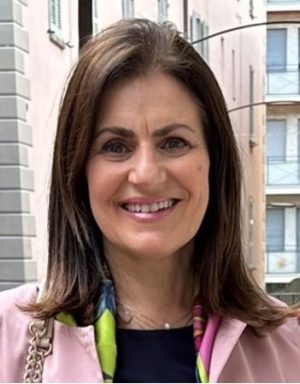
This Summit has strength in bringing together disciplines and approaches to justice that converge towards the perspective of a justice that is less abstract and vindictive, and closer to people, more attentive to their rights and needs. The time is ripe, in fact, for a progressive containment in the use of punishment in favour of forms of conflict management that give voice back to victims, attention and empowerment to communities, and that promote the full reintegration of the offender. Interdisciplinarity is the way to use scientific knowledge that can become a cognitive platform to make meaningful change.
Grazia Mannozzi
Grazia Mannozzi is professor of Criminal Law at the Università degli Studi dell’Insubria [University of Insubria] (Como – Italy), where she also teaches Restorative Justice and Victim-offender Mediation and Transitional Justice. Since the foundation in 2014, she has been Director of the Restorative Justice and Mediation Study Centre (CeSGReM). She has been trained in the use of circles by Phil and Harold Gantensby. In her research activity, she has mainly focused on sentencing system, restorative justice, economic crimes, corruption, corporate liability, law and language. Her publications have been translated in several languages. In 2003 she published a book on victim-offender mediation titled “La giustizia senza spada” [Justice without Sword] (Giuffrè, Milano). In 2017, she published the first Italian handbook of restorative justice, titled “La giustizia riparativa. Formanti, parole e metodi” [Restorative Justice. Matrix, words and methods] (Giappichelli, Torino – with G. A. Lodigiani) which is going to be translated into Spanish. In 2022 she published “La giustizia accogliente” [The Welcoming Justice] (Franco Angeli, Milano – with Roberto Mancini). During 2019 she was Chair of the Working Group on Restorative Cities established at the European Forum for Restorative Justice. She has been member of different Italian Legislative Commissions to reform the sanction system, the enforcement of punishment and (in 2021-2022) to propose a comprehensive legislation about restorative justice in the Italian criminal justice system, which has been enacted in December 2022. She has been the Italian expert in the Working Group on Victims’ Rights at Committee on Crime Problems (CDPC) to adopt the new Conuncil of Europe Recommendation on Victims’ rights.
Alanna Ojibway
Alanna Ojibway is the Assistant Director for the Center for Justice Reform at Vermont Law and Graduate School and team member for the National Center on Restorative Justice. Alanna comes from a blended Indigenous ancestry of the United Houma Nation of southern Louisiana, and the Anishinaabe people of the Great Lakes—specifically the Sault Ste. Marie tribe of Chippewa Indians. Alanna received her BA in Sociology at the University of California, Santa Cruz with a focus on international human rights and sustainable development. Alanna also studied in Morocco, Vietnam, and Bolivia through the School of International Training in a comparative-study program focusing on the politics of food, water, and energy. Before joining the Vermont Law & Graduate School’s Restorative Justice team, Alanna worked within the nonprofit sector both in Vermont and New York City, focusing on program management and services for issues related to homelessness, substance abuse, domestic violence and abuse, mental health, incarceration, and youth education. Working directly with families and community partners, restorative practices played an instrumental role in bridging the gap between the personal/generational trauma and systematic inequity.
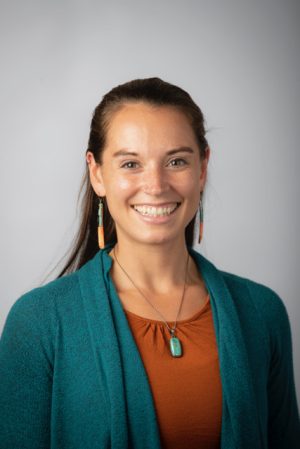
There is immeasurable value being able to gather in one collective space to share stories, perspectives, and practices in order to generate new ideas from a shared commitment to what building more resilient, safe, and equitable communities can look like.
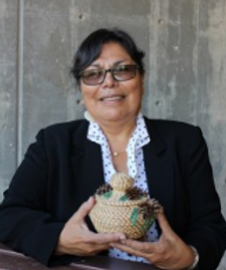
Cheryl Demmert Fairbanks
Cheryl Demmert Fairbanks, Esq. works in Indian law as an attorney and tribal court of appeals justice. Currently she is the Interim Executive Director of the UNM Native American Budget and Policy Institute. She recently was in Oregon serving as the Walter R. Echo-Hawk Distinguished Visiting Professor of Law at Lewis and Clark; and also she was a visiting Professor of Law at the University of New Mexico’s Southwest Indian Law Clinic. Formerly a Partner at Cuddy McCarthy LLP, she had a general practice in Indian law, including tribal-state relations, personnel, tribal courts, peacemaking and family conferencing, mediation, family, school, education, and indigenous law. Also, Ms. Fairbanks was a partner with the law firm of Roth, VanAmberg, Rogers, Ortiz, Fairbanks & Yepa, LLP, where she specialized in Indian law. She also worked as senior policy analyst with the New Mexico Office of Indian Affairs in the area of state-tribal relations. There, she was instrumental in establishing the Indian Child Welfare Desk, New Mexico Office of Indian Tourism, the University of New Mexico Indian Law Clinic, and the passage of the New Mexico Indian Arts and Crafts Act. Ms. Fairbanks is Tlingit-Tsimshian and was born in Ketchikan, Alaska. She obtained her BA from Fort Lewis College in 1969 and her JD in 1987 from the University of New Mexico. Prior to her law career, she served as a teacher for the Albuquerque Public Schools, Zia Day School, and Administrator for Acomita Day School and the Albuquerque/Santa Fe Indian Schools.
Wyllis Maihi
Kia ora, ko Wyllis Maihi toku ingoa, no Aotearoa, ko Ngati Whatua toku iwi, he Maori ahau. Greetings my name is Wyllis Maihi and I am from Aotearoa (New Zealand), my tribe is Ngati Whatua and I am Maori Over the many years I have been a youth worker, banker, builder, teacher and now, I work for my people, looking after our tribal village, or marae. My family has shaped who I am, and I have added to it along the way. I have chaired Te Pae Oranga Iwi Community Panels which is a Kaupapa Maori restorative justice solution in partnership with Ngati Whatua ki Orakei and the New Zealand Police over the past 3 years. My involvement with restorative justice comes from a heart reaction, caring and belonging, from culture which speaks, guides and provides a way forward.

When thinking about this summit, I thought, that me, that’s what drives me, I want to meet others like me. Ehara taku toa i te toa takitahi engari he toa takitini (I come not with my own strengths but bring with me the gifts, talents and strengths of my family).
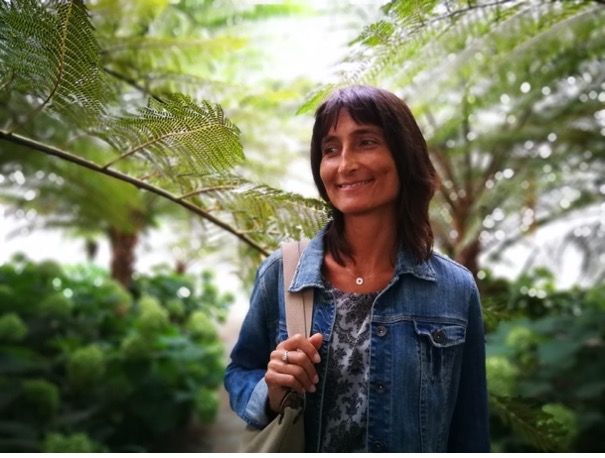
Gema Varona
Gema Varona is a professor of Victimology and Criminal Policy at the University of the Basque Country (UPV/EHU) and senior researcher at the Basque Institute of Criminology (Donostia/San Sebastian, Spain). Coordinator of the RJ Theory & Practice Lab at that UPV/EHU and co-director of the Master in Victimology of that University (2014-present), she is also the co-editor of the Journal of Victimology/Revista de Victimología. She has authored books and articles on migration, human rights, restorative justice, violence against women, victims of political violence, victims of sexual abuse, environmental and animal victimisation. She has been applying the restorative focus to the Basque Country context for many years.
Linda Kligman
Linda Kligman, Ph.D., is intrigued by the study and implementation of relational approaches to creating more inclusive and participatory workplaces. As President of the International Institute for Restorative Practices, she provides leadership for the graduate school, fostering a climate that nurtures respect, innovation, collaboration, and excitement. Linda has long been involved in community building and raising resources for purposes dear to her heart. She earned a Doctor of Philosophy in Interdisciplinary Studies from Union Institute and University with a concentration in Ethical and Creative Leadership and a specialization in Martin Luther King, Jr. Studies. Her award-winning dissertation, Widening Circles: A Grounded Theory Study of Workplace Leadership, utilized constructivist grounded theory to examine restorative practices within organizational leadership. Her forthcoming book, Heart Strong Work: Improving Workplace Culture examines how people can learn to share their power and create cultures with greater trust, belonging and stewardship. Her recent research centers around innovation, shared leadership in higher education, and democratization through followership.

This summit is a welcomed gift for connection. We bring our past experiences, share our present wisdoms, and together forge a more compassionate future.
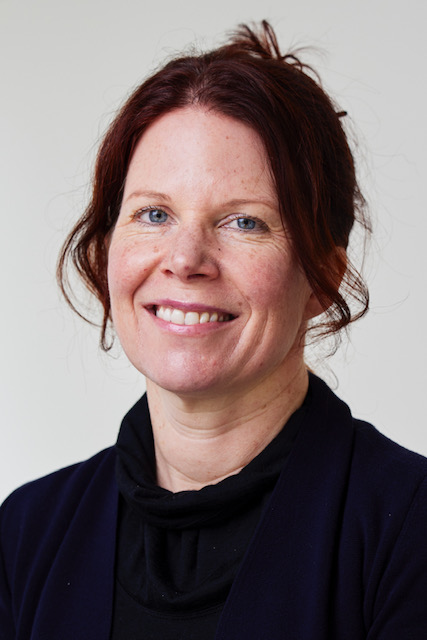
Miranda Forsyth
Miranda Forsyth is a Professor in the School of Regulation and Global Governance (RegNet) in the College of Asia and Pacific at ANU. Prior to coming to ANU, she was a senior lecturer in criminal law at the law school of the University of the South Pacific, based in Port Vila, Vanuatu. Miranda is the author of A Bird that Flies with Two Wings: Kastom and State Justice Systems in Vanuatu (2009) ANU ePress and co-author of Weaving Intellectual Property Policy in Small island Developing States, Intersentia 2015.
Krystal McLeod
Krystal McLeod, JD, is the Director of Development and Education at NYU’s Center on Violence and Recovery (NYU CVR). In her role at NYU CVR, she leads partnerships with jurisdictions interested in interrupting the cycle of violence through building restorative justice programs related to domestic violence that are innovative, culturally sensitive, and effective in reducing recidivism. She oversees the center’s training and technical assistance acting as lead interlocutor with government agency representatives, community-based organizations, and other project partners. She has extensive community engagement, organizational development, training, strategic planning, and partnership-building experience. She is the Principal Investigator on numerous contracts to provide RJ-based training and technical assistance to community organizations and treatment providers nationwide. A Dalai Lama Fellow, Truman Scholar, Compassionate Leadership Fellow, Lifelong Fellow, and Senior Humanity in Action Fellow, her restorative work is intersectional, anti-racist, and rooted in intersectional feminist thought. Ms. McLeod has worked at the White House and with AM 100 law firms, NGOs, and the UN Department of Public Information (DPI). A national advocate for restorative justice and a well-sought-after speaker, she is also the Co-founder of Vanity’s Truth LLC, an organization created by dynamic black women focused on the well-being, healing, and recovery journeys of black women. In 2022, Ms. McLeod was invited as one of 15 global young leaders to share her story with His Holiness the 14th Dalai Lama at his residence in Dharamshala, India. Her experience is featured on Dan Harris’s Ten Percent Happier podcast and app. Ms. McLeod holds a JD from the University of Notre Dame Law School and a BA in Politics from New York University.
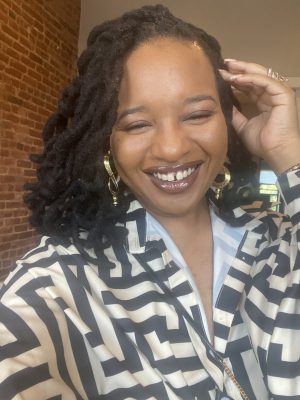
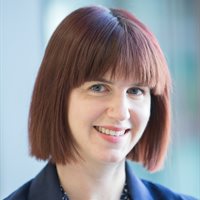
Meredith Rossner
Meredith Rossner is Deputy Director, Research School of Social Sciences and Professor of Criminology at the Centre for Social Research & Methods at the ANU. Her research focuses on emotions, rituals, the built environment, and technology in justice practices. Past and current projects include investigations into the emotional dynamics of restorative justice, therapeutic courts, the role of courtroom design on access to justice, and the use of video technology in courts. Currently, she is developing new research with Miranda Forsyth on RJ and sexual harm; she is writing about the relationship between transformative and restorative justice; and has recently completed some research in TJ and the new Canberra drug court. She is inspired by the work that seeks to find synergies between TJ and RJ. Other past research projects examine the increasing use of video technology in courts. She was the independent evaluator for the UK Ministry of Justices pilot of online courts. Prior to the COVID-19 pandemic, the video hearings pilot was a world-first attempt to have a hearing with no physical courtroom. She is also part of a project funded by the Canadian Social Sciences and Humanities Research Council on the use of automation and other technologies in the justice system. She has also conducted research funded by the Australian Research Council on courtroom architecture, technology, and access to justice and on interpreters in court.
Aditi Bhattacharya
Aditi Bhattacharya, LCSW, is Deputy Director of Client Services at NYC Anti-Violence Project, the largest anti-LGBTQ violence organization in the country, an organization that empowers lesbian, gay, bisexual, transgender, queer, and HIV-affected communities and allies of end all forms of violence through organizing and education, and supports survivors through counseling and advocacy. She holds an LCSW (licensed clinical social worker) from Hunter College School of Social Work and an MA in International Politics from Mumbai University School of Civics and Politics. A recipient of the “Emerging Leaders” award from the National Association of Social Workers, Aditi has served as Prevention Coordinator for Columbia University Sexual Violence Response and as Rape Crisis Program Coordinator at Mount Sinai Adolescent Health Center. She also served as Manager of the Sexual Violence Services Program for Womankind (formerly NY Asian Women’s Center), an advocacy group for survivors of complex trauma which provided the first Coordinated Community Response in NYC for Asian Pacific Islander organizations around intimate partner violence prevention (Asian Anti Violence Network). She has been doing anti-violence and anti-oppression work for 12 years and will continue, for as long as she can, to celebrate the life and resilience of people who survive great harm by helping them connect to their innate capacity for healing.
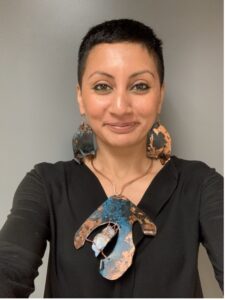
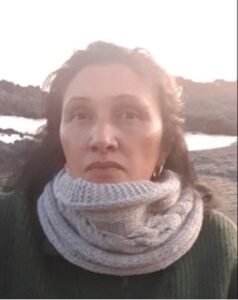
Adreanne Ormond
Adreanne Ormond, of the Rongomaiwāhine, Ngāti Kahungunu, and Ngāti Tuwharetoā Māori nations, specialises in Māori well-being through a lens of social and Restorative Justice. Her work, deeply rooted in her heritage, emphasises empowering Māori communities and youth. Adreanne’s commitment to addressing social injustice leads her to Restorative Justice principles, guiding her collaborative efforts towards healing and positive change.
Margaret Thorsborne
Margaret Thorsborne, a 3-decade pioneer of Restorative Practice in education, is an author, facilitator and trainer, working locally in Australia, and internationally, in China, SE Asia, South Korea, New Zealand, United Kingdom, USA and Canada. She has a teaching and school counselling background and is particularly committed to helping schools and other organisations implement this deeply relational, trauma-informed approach to school and workplace policy and practice. Marg has been awarded an Order of Australia (OAM) for her services to education and a Lifetime Achievement award by the American National Association of Community and Restorative Justice (NACRJ).
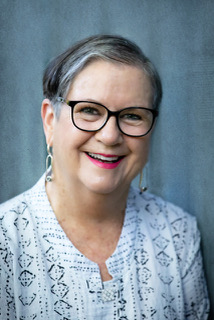

Sheryl Wilson
Sheryl Wilson is the Director of the Kansas Institute for Peace and Conflict Resolution (KIPCOR), at Bethel College, one of the oldest regional peace institutes in the United States. The Institute offers an array of resources in conflict resolution and peacebuilding, specifically in restorative justice education and training, as well as an extensive networking system for consulting and intervention.
Throughout her career, Sheryl has worked with individuals, non-profits, academic institutions, and public agencies from around the world. Her work in restorative justice has included facilitating restorative justice dialogues in various venues (including virtual circle-keeping for national forums), working as a community mediator and serving as a researcher. Her experience also includes teaching restorative justice courses at the college level, community outreach, victim offender dialogue, and defense-initiated victim outreach in capital cases. She is a past president of the board of directors of the National Association of Community and Restorative Justice (NACRJ), and currently serves by appointment on the Kansas Supreme Court’s Advisory Council on Dispute Resolution. She is the author of a chapter in Colorizing Restorative Justice, a book about restorative justice practitioners of color and the challenges they face.
Sheryl has been a practitioner, trainer, and educator in restorative justice for over twenty years and holds both a Bachelor of Science degree in Mediation and Communication Studies and a restorative justice-based Master of Liberal Studies degree from the University of Minnesota, Twin Cities.
Amber Johnson
As a scholar/artist/activist, Dr. Johnson’s research and activism focus on narratives of identity, protest, healing, and social justice in digital media, popular media, and everyday lived experiences. As a polymath, their mixed-media artistry involves working with metals, recycled and reclaimed goods, photography, poetry, percussion, and paint to interrogate systems of oppression and create capacity for different, critical futures. Dr. Amber Johnson is the Assistant Vice Chancellor and Chief of Staff in the Division for Equity & Inclusion at University of California, Berkeley. Prior to joining the administrative team at UC Berkeley, Dr. Johnson served as an award-winning Professor of Communication and Social Justice and as Executive Director and co-founder of The Institute for Healing Justice and Equity at Saint Louis University. Dr. Johnson specializes in community engagement, humanizing equity, and exploring the relationship between healing justice and equity. Dr. Johnson is also the founding director of The Justice Fleet™, a mobile social justice museum that fosters healing through art, dialogue, pleasure, and play. Dr. Johnson created The Justice Fleet to experiment with methodologies that re-imagine community engagement, healing justice, humanized equity, and critical futures.
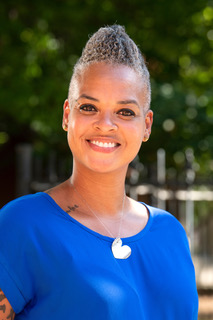

The 2024 Justice Innovations Summit has such great potential to bring together people of like heart and mind, people who want to engage with each other to envision and build a world that is more healed. If we are going to interrupt the cycles of harm and violence perpetuated by current systems, we need to do so with opportunities for healing, repair, and accountability. This Summit provides a space of co-learning and growth, grounded in the interconnectedness at the heart of the ethos of restorative, transformative, and reparative justice.
Leo Hylton*
Leo Hylton, MS, is a PhD student at George Mason University’s Jimmy and Rosalynn Carter School for Peace and Conflict Resolution. His education and work are based in trauma-informed, healing-centered Restorative Justice practices, and are focused on Social Justice Advocacy and Activism, with a vision toward an abolitionist future. Toward that end, he is working as a Visiting Instructor at Colby College, co-teaching Carcerality and Abolition. He is a lead facilitator of Maine State Prison’s Restorative Practices Steering Committee, serves on Colby College’s Restorative Practices Team, and provides consultation to RJ practitioners in the US and abroad. Leo is a core organizer of the Carter School Working Group on Forgiveness and Reconciliation, creating spaces of co-learning, growth, and trauma healing in the context of forgiveness and reconciliation. He is also a columnist for the The Bollard (formerly Mainer), where he writes a monthly column to raise public consciousness around the existence and power of humanity in carceral spaces. Leo’s education, work, and research are informed by his experience as a currently incarcerated citizen in Maine State Prison. For more, read, Trauma, Spirituality, and Healing: A Journey through the Lens of an Incarcerated Person. He will be presenting via zoom at the Justice Innovations Summit.
Claudia Mazzucato
Claudia Mazzucato is Associate Professor of Criminal Law at Università Cattolica del Sacro Cuore, Milano (Italy) where she also teaches restorative justice at both the Faculty of Law and the Faculty of Political and Social Sciences. She is among the coordinators of the “Federico Stella” Graduate School of Criminal Justice – ASGP in the same university. Claudia is an active member of the European Forum for Restorative Justice (EFRJ) where she is currently involved in the Working Group on Restorative Justice and Institutions. As a scholar she has devoted her studies mainly to the reform of criminal justice to reconcile criminal law and criminal procedure with democracy and participation. Among her main and most recent research projects are the EU-Funded Victims and Corporations (2016-2017; Justice Programme), Re-Justice. Judicial Training in Restorative Justice (2019-2021, Justice Programme), ySkills (2020-2024; Horizon 2020). Claudia is a restorative justice practitioner: in this capacity, and together with other colleagues and friends, her main achievement has been the facilitation of restorative dialogues in cases of political violence in Italy, an experience that has recently reached an international dimension thanks to The Encounter of the Encounters project. In 2021, she has been appointed by the then Italian Minister of Justice among the experts in charge of drafting a comprehensive legislation on restorative justice in criminal matters: the draft became law and entered into force at the end of 2022. In 2023, she has been appointed by the current Italian Minister of Justice among the expert members of the newly established national agency for restorative justice.
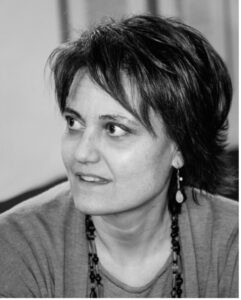
What is it about the idea of justice and justice systems that makes them so rigid and refractory to change and, therefore, innovation? Why is it that from Hammurabi’s code to the present day, ways of doing justice have changed, in essence, so little, especially when compared to the leaps and bounds of other sectors and areas of society? Why for millennia has justice, which we all recognise to be a virtue, been and still is capable of making humankind so cruel? In what directions must innovation in ways of doing justice move if something truly new and better is finally to come about? My long journey from Italy to Hawaii is moved by the spirit of these questions.
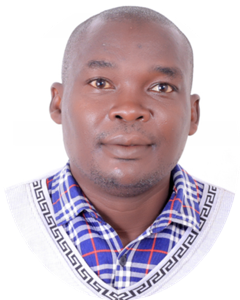
Labeling and clustering people according to race and social economic conditions by society is a great mistake and a form of injustice. Communities who are victims of this form of injustice have lost influence and the mastery of the sense of who they are, their rich cultural heritage and succumbed to the idea of being passive recipients of products and services.
This gathering offers a unique and very timely opportunity to bring together leading voices from an array of disciplines across the globe to spark conversations about new ways to rebuild our communities stronger again. It will be a great honor for me to share Igniting examples of men and women in Africa with renewed commitment and zeal, reclaiming their power to rewrite their stories and take charge of their lives and appropriately respond to the effects of adversity in more respectfully, innovative, empowering, honoring and in sustainable ways.
Caleb Wakhnugu*
Caleb is from Uganda where he works, as well as other African countries, as a social worker with over 100 certificates in multi-disciplines, and 20 years of practical experience working with children, women, families and communities affected by poverty, conflict, HIV and AIDs. With his team, Raising Our Heads above the Clouds was published and has been used by people in conflict situations in Northern Uganda and many other parts of the world. He also developed a training guide: The Power of Hope in Action.
As a trainer he has developed materials for frontline organizations working to lessen the effects of extreme poverty, family conflicts and wars, and to help increase economic strength, peaceful conflict resolutions, and re-building communities.He has traversed the African continent training major organizations including World Vision, Care International, TPO, Plan International, Child Fund and governments in mainstreaming psychosocial care and support into their work.
With his partners Dulwich Center Foundation, The Project DEFY, For Afrika and LBF- he has established Community Learning Centers called the Nooks- Schools without teachers enabling hundreds and thousands of marginalized people to take control of their educations to decide what they want to learn, when they want to learn, and how they want to learn. He uses the Narrative Therapy approach, a profound way to elicit individuals’ preferred stories, enabling people to understand their lives and the world they live in and taking individual and collective actions to better their lives. This approach is therapeutic in improving many aspects of physical, social, emotional cognition, and mental health. It helps create peace and harmony to relieve stress, anxiety and reduce negative thoughts and feelings, depression and works to incnature resilience, self-esteem, a sense of community and social connections.
Deborah Mrema
Deborah Mrema is a narrative therapy practitioner from Arusha, Tanzania. She is passionate about engaging with creative, evidence-based and innovative methodologies that make visible the relational nature , causes and effects of suffering and hardships in order to spark transformational change in youth’s lives and future potential. She has engaged in nurturing of spaces to respectfully honor stories of pride and survival to foster healing possibilities among youth living with chronic illness: emotionally, socially, psychologically and spiritually through narrative based methods, mindfulness , physical exercise and sports when supporting communities that have experienced significant hardships and illness.

The summit of innovation justice is quite a unique opportunity for practitioners and experts to share their experiences , context and ways of working with communities around the world . This collaboration will foster creative ways and perspectives that can be incorporated in our work with members of our community to create sparks for transformation, restore dignity and justice and bring about the change we hope to see.

Kapokuuipoonalani Schatzi Cope
Schatzi was born and raised with her families between the islands of ‘Alewa Heights, O‘ahu, Kalua‘aha, Moloka‘i, and Waimea, Hawai‘i Island. She is our ‘Ohana Conferencing Training Specialist supporting, growing and working with our team of Facilitators, Recorders and Coordinators. She provides training on essential facilitation skills, which include some technical and common skills for our ‘Ohana Conferencing team to continue to elevate in our roles, while also building pilina with one another, to better serve our community. Schatzi joined EPIC in 2016 as an ‘Ohana Conference Coordinator. The Coordinator role is in charge of setting up and scheduling the ‘Ohana Conferences for our ‘ohana involved with CWS. She progressed her way up to Lead Coordinator in 2018, and since 2021 as the ‘Ohana Conferencing Trainer. As a Training Specialist Schatzi also supports trainings through EPIC Nā Kama a Hāloa network. Her passion is in Native Hawaiian knowledge and values and helps deliver the Native Hawaiian Perspectives training to the new staff at CWS during their New Hire Training, as well as other collaborating organizations.
Craig Adamson
Dr. Craig W. Adamson, Provost and Associate Professor at the IIRP Graduate School, is a dedicated restorative practitioner with more than 25 years of experience delivering counseling and educational services to delinquent, dependent and at-risk youth. As President of the IIRP model programs, Community Service Foundation and Buxmont Academy, Craig has developed and implements innovative approaches that utilize restorative practices. As Provost, Craig oversees all IIRP educational programs including credit and non-credit educational offerings.
Craig’s recent publications include articles in the Journal of Transformative Education (2012) and New Directions for Teaching and Learning (2016), along with Contemporary Justice Review (2023). He authored a workbook for classroom teachers called Intentional Classroom Engagement (2020), the first book in IIRP’s Advanced Practitioner Series.

It is amazing to witness the field of restorative practices grow from a Google search that found dental work and construction sites to a legitimate field of study effecting so many people throughout the world. What a ride!
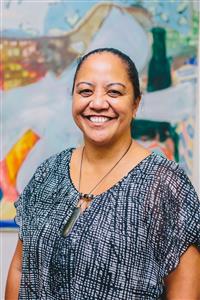
Stella Black
Ko Ngāi Tūhoe, Whakatōhea, Te Whānau-a-Apanui me Ngāti Whakaue ahau. Stella is a proud “He Ture Kia Tika/Let the Law Be Right” Māori social justice researcher and advocate. She is inspired by the words of Moana Jackson a staunch Māori activist for Māori rights in a discriminatory judicial system, who encouraged Māori “to dream.” Stella brings kaupapa Māori research methodologies and methods to each project she works on because these work for everyone. She is particularly passionate about working with whānau, hapū, iwi and hapori organisations who courageously share their pūrākau for others to dream too. Ngā mihi e ngā māreikua me ngā whatukura mō tō rātou pūrākau, kei te mihi, kei te mihi, kei te mihi.
Katey Thom
Katey is a pākehā interdisciplinary social justice researcher exploring the spaces where law and health interface. Her overall aim in research is to inform policy, practice and legal reform that improves outcomes for some of the most marginalised people in society. Katey’s current research has a strong focus on social justice issues in mental health and addiction, covering various aspects of mental health law, human rights, and therapeutic initiatives within the criminal justice system. Katey has a strong interest in considering the implications of the United Nation Convention for the Rights of Persons with Disability in Aotearoa and realising supported decision-making across mental health services. Katey is proud to be part of He Ture Kia Tika, working with diverse communities to re-envisage the criminal justice system to better respond to people with intersecting mental health, addictions and criminal justice histories.


Jane Bolitho
Jane Bolitho is an Australian social scientist and holds the Diana Unwin Chair in Restorative Justice at Victoria University of Wellington New Zealand where she is an Associate Professor and heads the Centre for Restorative Practice (Te Ngāpara). The Centre works to provide rigorous critical scholarship directly supporting the many government sectors in New Zealand using restorative practices including in the youth and adult justice systems, corrections, schools, workplace, health & treatment injury space. The Centre regularly provides advice to organisations using co-design principles to find restorative approaches to the wickedly challenging social justice issues of our times. Situated within a restorative university, the Centre supports restorative services to staff & students. Jane is also the co-founder of Transforming Justice Australia a specialised, community based, restorative justice service supporting survivors of sexual violence, persons responsible and their communities of care to find justice and healing outside of the legal system.
Ivo Aertsen
Ivo Aertsen is Emeritus Professor of Criminology at the University of Leuven (Belgium). He holds degrees of psychology, law and criminology from the same university. Before coming to academia, Ivo has been working for 12 years ‘in the field’, first in a prison with long term inmates and later with victims of crime, including a mutual support group of parents of murdered children. At the Leuven Institute of Criminology he has been leading the Research Line on ‘Restorative Justice and Victimology’ from 2001 to 2019. He has been chair of the European Forum for Restorative Justice from 2000 to 2004, and has coordinated a series of European research projects and international publications. He has been involved as expert in restorative justice related work in various countries and for international institutions such as the Council of Europe, European Union and United Nations. In Belgium, he has been actively involved as expert and facilitator for victims of sexual abuse in the Roman Catholic Church during a period of 6 years. He is doing (action-)research on the relevance of restorative justice for various contexts of institutional violence and for environmental crime, as well as exploring the meaning of restorative cities. He is Co-Editor of The International Journal of Restorative Justice and General Co-Editor of The International Encyclopaedia of Restorative Justice.
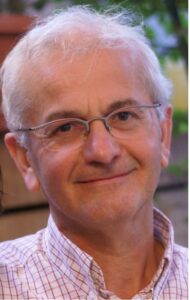
How challenging it is to learn from different forms of justice and how they (can) interact with each other, in practice and theory. How beneficial to better understand the dynamics of informal and formal justice. And how promising an encounter with activists and scholars from all over the world, with their own cultural, legal and political contexts!

The Justice Summit value and benefits are that everyone is connecting together to figure out how to ensure communities lead the way on innovations for their systematic issues and problems instead of allowing the government to be in control. One of the biggest values for myself is that I finally have found my tribe in my career and I’m excited to see how I grow and develop in this field!
Alexandria Ware
As an alumna of foster care, Alexandria knows firsthand about the good, inadequate, ugly, missed opportunities, mistrust, and distrust of the foster care system. Yet, Alexandria was fortunate enough to be mentored and loved by people who helped her find her purpose in life and contributed to her success. As a result, she founded Culture Creations Inc. to assist participants similar to her who have lived and shared foster care experiences. Alexandria works diligently to change the narrative of negative statistics to positive outcomes for foster care alums. She aims to support and love her fellow foster care alums in taking control of their lives by assisting them with access, opportunities, support, love, and community support. Further, to obtain the resources they need and deserve to reach their highest potential and find their purpose.
Robin De Rego
Robin is the `Ohana Conference Field Staff Supervisor at EPIC `Ohana, Inc. She continues to facilitate and record `Ohana Conferences serving Hawai‘i families, providers and Child Welfare Services. Robin joined EPIC `Ohana, Inc. in 2014 as the Lead Family Wrap Hawai‘i facilitator where she facilitated conferences and team meetings in both the Family Wrap and `Ohana Conference programs. EPIC `Ohana Inc. is a neutral non-profit that brings together families, Child Welfare Services, and service providers together in a facilitated meeting to uplift family voice and choice. Honoring the family’s culture creating a safe space for all participants are a few goals of `Ohana Conferencing. Prior to working at EPIC `Ohana, Inc., Robin was an Assessment Social Worker with Child Welfare Services. She is a former Resource Caregiver for Child Welfare Services as well as an Adoptive parent of two. Robin is a Lecturer at the University of Hawaii Thompson School of Social Work and Public Health specializing in Children and Families since 2018. Robin graduated from the University of Hawai‘i West Oahu with a Bachelor’s Degree in Public Administration. She attended the University of Hawaii Manoa, School of Social Work and Public Health. She graduated with a Master’s Degree in Social Work. Robin is alumni in the Hawaii Child Welfare Education Collaboration (HCWEC) program and now serves on the HCWEC Advisory Board. Robin continues as a Field Educator/Supervisor for the School of Social Work for the past 12 years. Robin was born and raised on the Windward Side of the Island of Oahu, Hawai‘i. She is deeply-rooted in the Kāne‘ohe community.


I’m so grateful for the opportunity for people to come together who are interested in how restorative and transformative justice practices may enhance relational and structural changes to our way of life—so much to learn and share.
Deborah M. Weissman*
Deborah M. Weissman is the Reef C. Ivey II Distinguished Professor of Law at the University of North Carolina School of Law whose research, teaching, and practice interests include gender-based violence law, immigration law, and human rights in the local and international realm. She is the Chair of the North Carolina Commission on Domestic Violence and serves on the committee that supports Domestic Violence Intervention Programs (DVIP). She initiated an interdisciplinary project that includes faculty and students from the school of law, public health, global studies, and communication known as Project RESTART. Currently, the project is studying how restorative and transformative justice approaches might be integrated within DVIPs, with a focus on creating new social justice partners in order to understand and mitigate the political economic determinants of gender violence.
Barb Toews
Barb Toews is Associate Professor in criminal justice at University of Washington Tacoma. Her research focuses on the relationships among restorative justice, environmental design, and psycho-social-behavioral-judicial and trauma healing outcomes for people who have been harmed, people who have caused harm, and justice practitioners. In addition to empirical and theoretical journal articles, she is co-author, with Howard Zehr, of Still doing life: 22 lifers, 25 years later (The New Press, 2022) and Critical issues in restorative justice (2004). She is also author of Little book of restorative justice for people in prison (2006) and the current series editor of the Little Books of Justice and Peacebuilding series (Good Books). Prior to becoming faculty, Barb held leadership positions in restorative and criminal justice non-profit organizations. This included two community-based victim-offender dialogue programs as well as an agency that advocated and provided services for incarcerated people and their families, through whom she developed and facilitated restorative justice programs in collaboration with incarcerated men and women. She is an experienced victim-offender dialogue facilitator in both non-violent and violent crimes.
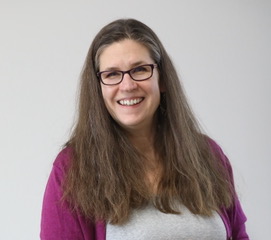

Kimmy Takata
Kimmy Takata is a passionate advocate for justice reform, specializing in supporting women transitioning from prison. As the Forensic Peer Coordinator at the Pu’a Foundation, she empowers women as they navigate the challenging journey from incarceration to societal reintegration.
Kimmy’s inspiring journey began after 15 years of incarceration, during which she resolved to make a meaningful impact. She pursued higher education, earning an Associate of Arts degree in Hawaiian Studies from Kapiolani Community College and a Bachelor’s degree in Environmental Science with a major in Psychology from Chaminade University. This diverse educational background equips her to understand and address the complex challenges faced by individuals reentering society, particularly women.
Kimmy’s notable contributions include her work in peer support, a crucial element of the reintegration process. Her firsthand experience, coupled with her education, enables her to effectively mentor and train others in providing meaningful peer support, leading to transformative change in many lives.
Kerrie Sellen
Kerrie Sellen founded Restorative Journeys and works with schools, government and community agencies including remote Indigenous communities throughout Australia promoting the use of explicit restorative practice.
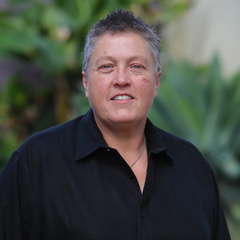
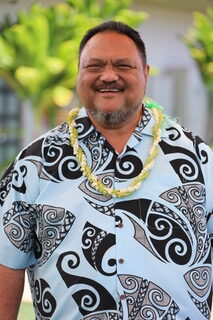
Mark Kawika Patterson
Mark Kawika Patterson is currently the Administrator of the Hawai`i Youth Correctional Facility, Kawailoa Youth and Family Wellness Center. Mr. Patterson began his career in Hawai`i’s Department of Public Safety over 34 years ago as a corrections officer. He rose to the ranks of Warden in 2007 and began a successful tenure working at Women’s Community Correctional Center (WCCC). At WCCC, he facilitated a transitional process to instill trauma-informed practices throughout the facility, state agencies, and community partners.
In June 2014, Mr. Patterson was recruited to build upon his success at WCCC and assist the reform efforts at the Hawai`i Youth Correctional Facility for the Office of Youth Services (OYS). In this role, he continued his trauma-informed care work to integrate opportunities to identify and address trauma and strengthen family connections. His passion to rethink the corrections approach and move toward a therapeutic approach was centered on the Hawaiian concept of creating a pu`uhonua—a traditional Hawaiian place or sanctuary of healing.
Mr. Patterson is currently the chair of the Correctional System Oversight Commission (established in 2019 through Act 179). His service has been instrumental in Hawai`i’s movement to become a trauma-informed state over the past 15 years.
Clivia von Dewitz
Clivia von Dewitz, is a Youth Court judge in Northern Germany, currently on sabbatical. She has conducted research in New Zealand, Canada and the US (Alaska and Hawaii) on restorative justice and indigenous justice. In 1997 she interned at the Truth and Reconciliation Commission in South Africa and wrote a book on how South Africa dealt with the apartheid past. Her PhD is on how Germany addressed Nazi-propaganda after 1945. In 2023 her latest book was published, a manual on Restorative Justice for judges and public prosecutors.
She has provided trainings for judges in Tunisia on democracy and human rights (2014) and judges and prosecutors on restorative justice in Nepal (2019) and Brazil (2018) and Germany.
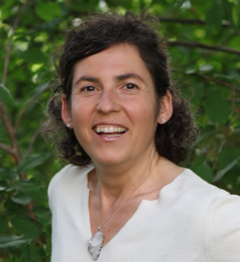
Having interned at the Truth and Reconciliation Commission in South Africa in 1997 I have started to develop a vision of a Peace Commission for the Ukraine-conflict once the conflict has ended. It addresses the question of alternatives to a criminal justice approach to human rights violations à la Nuremberg or The Hague. Having witnessed human rights violation hearings in the Eastern Cape and amnesty hearings in Pretoria I have found there a very human and dignified setting in dealing with human rights violations that should serve as a model in coming to terms with crimes in the aftermath of other violent conflicts – even wars. Setting up a form of truth commission is a beautiful and resourceful way to promote peace and reconciliation and restore justice. I am happy to learn more about innovative and indigenous ways of contributing to justice and repairing broken relationships at the Summit.
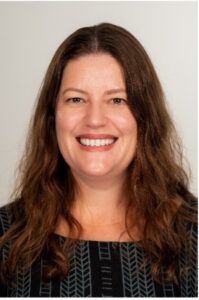
Emma Kurashige
Emma Kurashige is a native of the Marshall Islands. She moved to O‘ahu in 2001 and has lived in Honolulu for over 20 years. Emma is currently a Statewide ‘Ohana Conference Manager at EPIC ‘Ohana Inc. She is a graduate of Hawai’i Pacific University where she received both Bachelor’s and Master’s Degrees in Social Work. Emma joined EPIC ‘Ohana Inc in 2009. Since then, she has held multiple roles. Emma was promoted to `Ohana Conference Manager in 2019. She currently leads the largest team of 30 staff statewide. EPIC `Ohana is a non-profit that brings families, child welfare, and service providers together in a facilitated meeting to uplift family voice and choice. EPIC facilitates over 1,000 conferences per year for families across the state. Previous to EPIC ‘Ohana, Emma has worked with the houseless, elderly and youth populations. She was also a substance abuse counselor for teens at the YMCA and a Match and Enrollment Specialist, interviewing youth and volunteers for Big Brothers Big Sisters Hawai’i. She also provides Marshallese cultural training around the state to help build connections and understanding. She is a proud founding member of We Are Oceania, a non-profit one-stop-shop that services the Marshallese and Micronesian Communities in Hawai’i.
Leanne Trapedo Sims
Leanne Trapedo Sims, Daniel J. Logan Professor of Peace and Justice at Knox College, is shaping a new, interdisciplinary program in Peace and Justice studies with a focus on critical carceral studies and abolition. She is building an Inside-Out-style Prison Exchange program with the nearby Henry Hill Correctional Center; as well as establishing a Restorative Justice Laboratory at Knox College. She envisions the Lab as an incubator for local activists, artists, advocates, impacted families and the inside community to address reparative justice and mass incarceration. Trapedo Sims conducted trans-disciplinary research at the sole women’s prison in Hawai‘i. Her work interrogates the intersections of gender, Indigeneity, violence and state power in colonized Hawai‘i. Her book – Reckoning with Restorative Justice: Hawai‘i Women’s Prison Writing – is forthcoming with Duke University Press, September 2023. Her work has appeared in Signs: Journal of Women in Culture and Society, 2020 and in Frontiers: A Journal of Women’s Studies 2018 special issue, “Mapping Gendered Violence: Contemplating Conflict and Crisis in Contemporary Societal Struggles.”
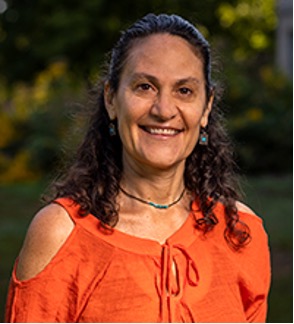
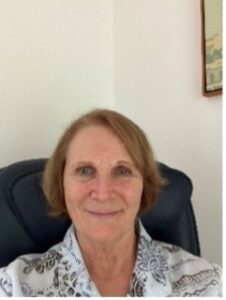
Wilma Friesema
Wilma Friesema, MFT, is a writer, former psychotherapist, and recently retired employee of EPIC `Ohana, Inc. At EPIC, her primary role was to help restore and rejuvenate connections between youth in foster care and their biological families. In addition, she helped launch and became a supervisor of EPIC’s Wrap program, helped create and facilitate staff trainings, presented at national conferences, served on numerous community committees, and provided individual emotional support as well as group well-being workshops for staff. Her contributions as a writer consisted of: assisting in grant writing, being a lead writer for Building Connections a quarterly newsletter for Hawai‘i’s Child Welfare Services community, and writing chapters for two text books on Restorative Justice: Restoring Justice in Practice: A Holistic Approach, and Readings in Restorative Justice. During the time of COVID restrictions, Wilma also helped create and produce several education videos that depict EPIC’s restorative justice efforts.
Donna Coker
Donna Coker is a Professor of Law at the University of Miami School of Law. Her scholarship, teaching, and advocacy regard restorative justice (RJ) responses to intimate partner violence (IPV) and campus sexual misconduct; domestic violence law and policy; the intersections of gender, race, and class subordination in criminal law doctrine, policy, and enforcement; and the politics and practice of prison abolition. She is a leading critic of the dominant crime-centered approach to IPV and sexual assault. Her research regarding the use of restorative justice approaches to IPV and sexual harm has influenced work in the interdisciplinary fields of restorative justice and domestic. She was the 2022-2023 International Fellow with The Restorative Lab, affiliated with Schulich Law School, Dalhousie University. She and her students are currently working with Beyond the Bars, a community organization, to change policies related to jail incarceration in Miami-Dade County, Florida.
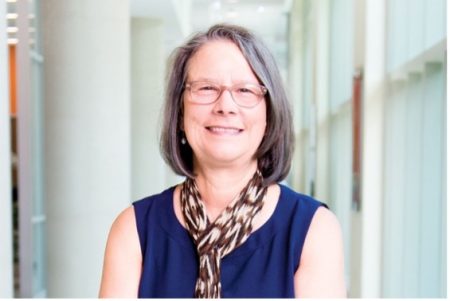
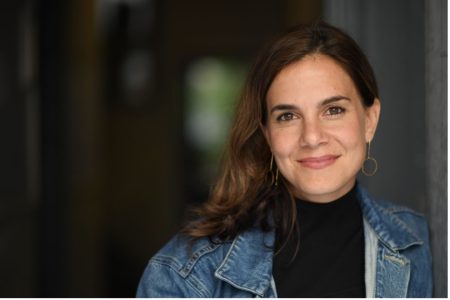
To me, our work gets stronger in direct relation to the strength of our bonds as a community, and to our capacity to share lessons learned and build with one another. I am looking forward to deepening my understanding of this work, celebrating our collective wins, and catching up with friends, old and new.
Erika Sasson
Erika Sasson is an attorney and practitioner who designs and facilitates restorative justice processes. Her work is focused on piloting restorative frameworks for complex harm, including for intimate partner violence, sexual assault, and homicide. She also consults on long-term projects with organizations in New York City and around the country who want to create restorative justice programming, or who need to navigate complex dynamics in pursuit of a healthier workplace. Erika’s work is anchored by her experiences learning directly from Native American peacemakers from across North America. Among her current projects, Erika is working with Violence Intervention Program—NYC’s only Latinx-led nonprofit focused on providing culturally-specific services to Latinx survivors of domestic and sexual violence—to create a localized restorative justice program tailored to the needs of their community. Erika is a 2023 recipient of The David Prize for extraordinary New Yorkers. Originally from Canada, Erika moved to NYC in 2009 and is raising a family with her husband Misha in Brooklyn, NY. Learn more or get in touch at erikasasson.com.
Aparna Polavarapu
Aparna Polavarapu is the executive director of the South Carolina Restorative Justice Initiative (SCRJI), a professor at the Joseph F. Rice School of Law at the University of South Carolina, and a restorative justice practitioner. As the executive director of SCRJI, Aparna oversees the development of restorative justice education and programming, supports community circles, and works with community members seeking to develop their own restorative practices. Her experience with restorative justice comes from her international human rights work, through which Aparna came to better understand and respect the contributions of community-based justice practices. As a law professor, she teaches and writes in the areas of restorative justice and human rights. Aparna is also a commissioner on the South Carolina Access to Justice Commission and a Liberty Fellow with the Aspen Global Leadership Network
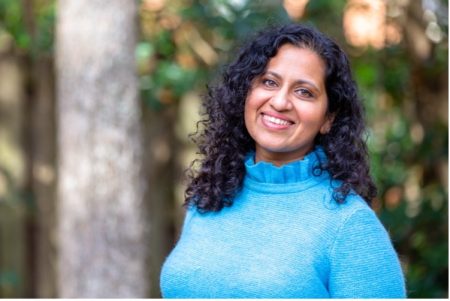
The deep work of transforming communities and dismantling systems of oppression can only be completed when we can learn from one another across geographies and disciplines, question our assumptions, and strengthen our connections.
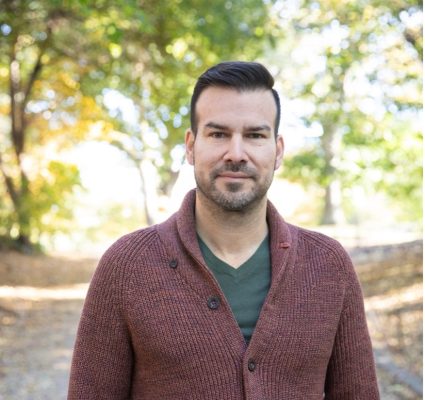
Alvaro Pinzon
Alvaro Pinzon, MSW, is Director of Respect & Responsibility Program at Rising Ground Inc. Alvaro is a social worker, advocate, and facilitator dedicated to ending intimate partner violence by promoting healthy masculinity, creating opportunities for learning healthy relationship behaviors, and offering spaces for healing. As director of Respect & Responsibility, he encourages and challenges people who have used harmful, controlling, and abusive behavior toward their intimate partners, to take personal accountability, examine their motives, consider healthier alternatives, and work toward their own healing from their own emotional and psychological wounds. Alvaro has developed his approach to education and facilitation from years of supporting and advocating for survivors of intimate partner violence, learning from the writings and teaching of intersectional feminists, and from continuous reflection of his own life, upbringing, and Latin American culture. He brings compassion and humor to his work and is driven by the desire to see everyone in safe and loving relationships. Alvaro is a lover of dance, poetry, and making meaningful connections with people.
Purvi Shah
Purvi Shah cultivates space for healing and transformation through anti-violence advocacy and creating art. With Charlene Allen, she currently co-facilitates the NYC Collaborative for Restoring Healing and Transforming Communities to address intimate partner violence with community-centered approaches. Purvi led first-hand stakeholder research and systems change facilitation toward authoring the report, Seeding Generations: New Strategies Towards Services for People who Abuse, which prompted a NYC community-based initiative addressing intimate violence. Purvi also facilitates strategic retreats, including recently co-facilitating the Climate Justice Alliance 10th anniversary membership convening. She works as an equity consultant with non-profits, foundations, and government agencies. Purvi served as Executive Director of Sakhi for South Asian Women and won a SONY South Asian Social Services Award for her community leadership against violence. Her expertise has been featured in The New York Times, New York Newsday, and on CNN, WABC in NYC, The Brian Lehrer Show at WNYC, New Delhi TV, and TV Asia. She has led creative expression workshops with survivors. Her most recent book, Miracle Marks, explores gender violence, racial inequity, and intricacies of the sacred. Her prize-winning debut book, Terrain Tracks, plumbs migration and belonging. With artist Anjali Deshmukh, she creates interactive art at https://circlefor.com/. Purvi relishes sparkly eyeshadow, raucous laughter, and seeking justice.
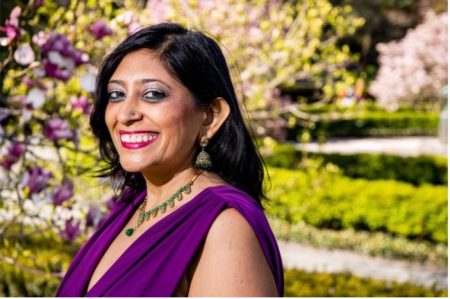
Transformation happens in community. The Justice Innovations Summit is a vital garden for growing connections, strategies, and communities of practice furthering healing and justice.
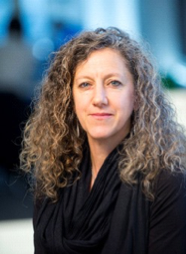
Ailikki Vernon
Alikki Vernon has worked in conflict management and restorative practices for over 20 years. Her independent specialist practice provides mentoring, technical support for service-delivery & program development in justice, community and workplace contexts, practical support in managing workplace conflict, governance of community and public sector organisations, & effective responses to institutional abuse and family violence. Alikki provides expert services for the Office of the Commonwealth Ombudsman’s Restorative Engagement Program, the National Redress Scheme, and non-government and government agencies. She coordinated the Conflict Resolution Programs at La Trobe University’s School of Law for over a decade, & currently provides 3-day professional development generic restorative practices training in Setting Relations Right. Alikki is currently Vice President of the Australian Association for Restorative Practice
Fernanda Fonseca Rosenblatt
Fernanda Fonseca Rosenblatt, Ph.D. is an Associate Professor at the International Institute for Restorative Practices (USA) and a Professor of Law at the Catholic University of Pernambuco (Brazil). She is Book Review Editor for the International Journal of Restorative Justice. She is also a member of the Research Committee of the European Forum for Restorative Justice. Fernanda has also been a member of the Executive Committee of the World Society of Victimology (2016-2023). Her research interests include restorative, community and youth justice, critical criminology and victimology. She has published peer-reviewed articles and book chapters in these areas in Brazil and abroad and is the author of The Role of Community in Restorative Justice (Routledge, 2015).
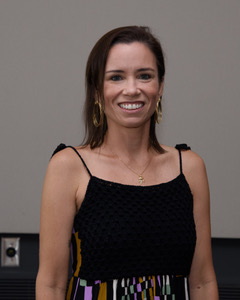
The restorative movement has grown in so many new and exciting directions. Its concept and scope have fortunately broadened and seem now more intentionally intertwined to other social movements, as well as to other areas of research, practice and policy. This Summit reflects all that and is one of the most unique contemporary opportunities to meet a diverse pool of people engaged in the struggle to keep pushing the movement forward. I just can’t wait to be there!

Quentin Walcott
Quentin Walcott, also known as “Q,” is a prominent national and international anti-violence activist, educator, and writer with a 23-year track record. His core focus has been mobilizing men and boys as allies in the movement to combat intimate and gender-based violence, emphasizing the intersections of violence—race, class, and gender—and its impact on marginalized communities. As CONNECT’s Executive Director since 2020, Quentin previously served as co-executive director, directed the CONNECT Training Institute (CTI), and led CONNECT’s Community Empowerment Program. He plays a key role in the NoVo Foundation’s Move to End Violence initiative, serves on the Resonance Network’s Governance Committee, and co-chairs the Mayor’s ENDGBV Advisory Council. Quentin is a co-founder of the Father’s Day Pledge Against Violence, received the United Nations Trust Fund to End Violence Against Women Award in 2014, and was the inaugural male recipient of the NOW-NYC Susan B. Anthony Award in 2012. A CUNY graduate, Quentin initiated his work in 1996, addressing abusive behavior and interventions, and has since conducted international training forums, partnered with Cornell University ILR School on workplace violence prevention, and collaborated with V-Day Artistic Director Eve Ensler on V-Men programming in 2006. His extensive contributions extend globally, having led training sessions in various countries. Quentin’s commitment to ending violence is evident in his diverse and impactful initiatives
Lorena Victorasso
Lorena Victorasso is a judge in Brazil, serving at the Court of Justice of Pernambuco and working mainly with inmates at the post-sentencing stage. She is also the coordinator of the Court’s Custody Hearing Center in Caruaru (city in the Northeast of Brazil); deputy coordinator of the Court’s Penal Policies for the Monitoring and Inspection of the Prison and Youth Detention Systems; coordinator of the Court’s Working Group on Sexual and Gender Diversity and its intersectionalities; member of the Intersectoral Group in the State of Pernambuco devoted to the National Labor Policy within the scope of the Prison System; advisor to the Pernambuco State Committee to Prevent and Combat Torture; and member of the Working Group on Penal Alternatives of Brazil’s National Council of Justice (a body that oversees the workings of all courts in the country). She has a BA in Law from Milton Campos Law School (Brazil) and a graduate certificate in State Law from the University of Anhanguera (Brazil). She is currently completing another graduate certificate in Contemporary Criminal Justice and the Prison System at ENFAM (a school devoted to the training and top-up training of judges in Brazil).

As a judge in Brazil, I have daily contact with numerous persons deprived of their liberty who are serving their sentences in undignified conditions and who are unfairly denied the right to participate in activities that enhance their personal growth and development. I witness a punitive system that, in addition to not providing an experience of justice for victims, society, nor for offenders, continues to segregate and perpetuate (state) violence. I see our gathering in Honolulu as a precious opportunity to share and discuss initiatives flourishing all around the world that can contribute to a transformation of this reality, reintegrating people and restoring relationships.
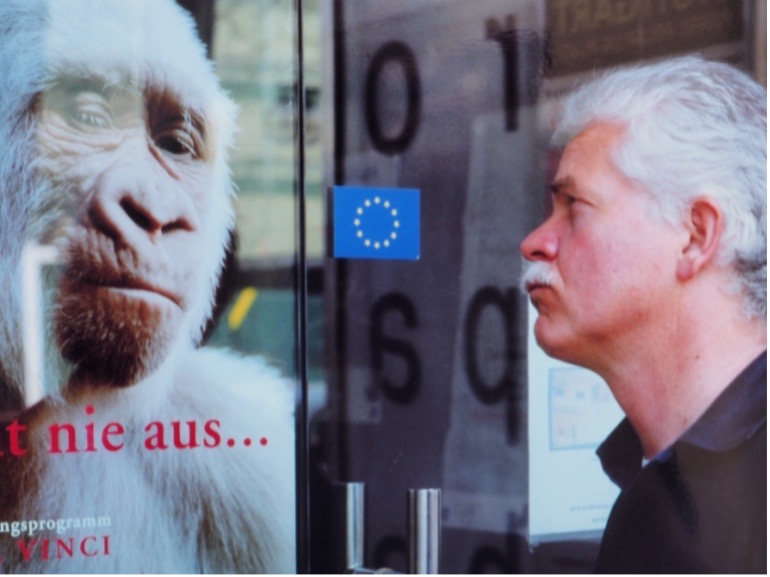
‘The string quartet is not reducible to the sum of its components and presents itself to us, instead, as an ‘instrument’ whose dialectic between individuality and unanimity, between autonomy and homogeneity, seems to stand as a paradigm of an ideal society.’
— Luciano Berio, Italian composer, 1925-2003
We are tuning up our instruments so that we can play our string quartet at the justice innovation summit in Honolulu to bring harmony in a very dissonant world.
Claudio Fontana
Claudio Fontana is a philosopher, teacher, mediator, photographer (and swimmer), with a degree in Philosophy in Milan and postgraduate studies in Pavia, he has taught History and Philosophy to two generations of students, paying particular attention to the complexity of relationships between disciplines and between people in order to create an environment conducive to learning and the construction of personal identity. He has worked as a trainer and tutor for teachers in the social and geo-historical studies. Trained in Humanistic Criminal and Family Mediation at the C.I.M.F.M. (Italian Centre for Mediation and Mediation Training in Bologna), he is a member of the EFRJ (European Forum of Restorative Justice) Register of Qualified Trainers, a member of the CeSGReM (Centre for Restorative Justice and Mediation Studies) at the University of Como, a member of the C.I.M.F.M. Board of Directors and of the Technical Scientific Committee. He works in the field of mediation in criminal cases (especially juvenile) and restorative justice, and gives courses on conflict management in primary and secondary schools.
Carissa Phelps
Carissa Phelps, Esq., is a leader in the anti-human trafficking movement for nearly 15 years. Unfortunately, she contracted an illness and can no longer travel to Hawai’i for the Summit. Carissa earned her Juris Doctorate from UCLA School of Law, and an M.B.A. from UCLA’s Anderson School of Management. Leveraging her education and life experiences she successfully built and launched a platform for survivors of all forms of human trafficking to create policies and educate first responders about the impacts of human trafficking. Phelps is a sought-after speaker and ally to local communities, non-profit agencies and individuals. Through appearances on CNN, Good Morning America and USA Today she helps to bring national and local attention to human trafficking and has been part of significant changes in related legislation, policies, and procedures. Phelps is the subject an award-winning documentary about her life, CARISSA, which premiered in 2008. The film, along with her memoir Runaway Girl: Escaping Life on the Streets One Helping Hand at a Time (Viking, 2012), are used across the country as teaching tools for child welfare professionals, human trafficking survivors, and advocates of justice reform.In addition to her law degree and Masters of Business Administration, Phelps earned a Bachelor of Arts in mathematics, summa cum laude, from California State University, Fresno. She has also received several honors and awards, including UCLA Anderson’s Top 100 Inspirational Alumni (2010) and Fresno State University’s Outstanding Alumni Award (2013).

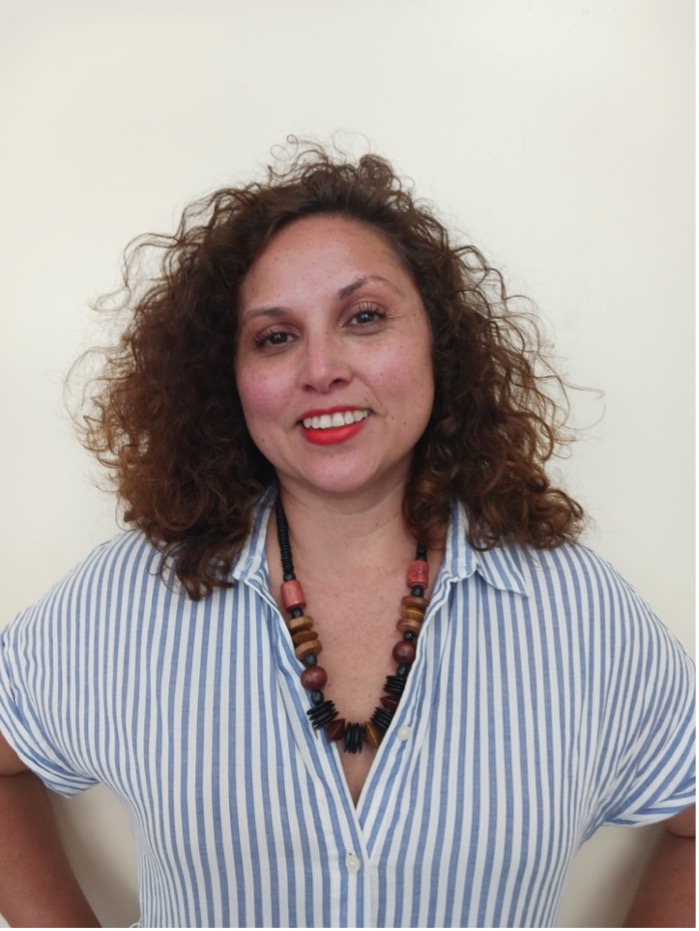
Katia Amaya-Salinas
Katia Amaya-Salinas, LMSW is a Salvadoran, New York City based, bilingual licensed social worker. Katia received her Masters in Social Work from New York University, Silver School of Social Work where she focused her studies in working with immigrant families and policy practice. Katia has over 10+ years of practice experience working with immigrant and BIPOC communities. Katia has mainly focused her work in helping children and families impacted by complex and intergenerational trauma specifically in the field of domestic and gender-based violence. Currently, Katia is the Associate Director of Community Programs at the Violence Intervention Program (VIP) in NYC. The Community Programs at VIP (located in Queens, Manhattan and the Bronx) offer a wide range of holistic services to survivors of domestic violence. Services include psycho-educational counseling, housing advocacy, economic empowerment, financial and educational literacy and group counseling. Prior to joining VIP, Katia worked in many different social work capacities. Some of Katia’s roles have included being a trauma therapist for adolescents at risk of sexual exploitation, family therapist for children and families impacted by domestic violence, SIFI instructor and clinical supervisor. Katia prides herself in practicing from an anti-oppressive, anti-racist and trauma informed lens. As Katia’s social work journey evolves and grows, her passion continues to lie in empowering immigrant communities and her journey has led her to center restorative and transformative healing practices in her work.
Deborah Hollingworth
Deborah Hollingworth is a senior legal and regulatory practitioner at the Environment Protection Authority, Victoria Australia. Drawing on her years of legal practice in the community sector and criminal law Deborah has championed the benefits of restorative justice as a way to achieve more effective environmental regulatory outcomes, alongside traditional enforcement actions.
Deborah has played a leading role in ground-breaking regulatory, policy and organisational change particularly in the field of environmental justice and the recognition of First Nations cultural values. She instigated EPA’s foundational Aboriginal Inclusion program, a complex body of work, now being implemented as an organisational and regulatory commitment. This work has resulted in collaborations with Traditional owners to protect Country and to establish the regulatory pathways, which ensure cultural values are enshrined in the practice of environment protection. This work has drawn on restorative justice approaches.
Deborah is the Partner Investigator on an Australian Research Council (ARC) joint research grant with the Australian National University RegNet (2018-23) exploring emerging examples of restorative justice in environmental regulation. In 2015-2016 she was the recipient of the EPA’s Mark Payton Scholarship. The scholarship work supported an exploration of the principles of environmental justice, its application in a regulatory context.
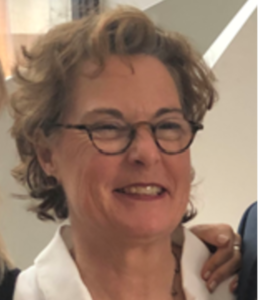

Raquel Domingues do Amaral
Raquel Domingues do Amaral is the mother of two boys and a girl. She is a federal judge in Mato Grosso do Sul. Since 2009, she has been involved in social projects with original and traditional Indigenous communities in the Pantanal. She has a Master’s degree in Law Effectiveness from the Pontifical Catholic University of São Paulo and a Ph.D. in State Law from the University of São Paulo. She is also a Professor of Restorative Justice at Unigran Capital University. She is a researcher in Ecological Ethics, the Rights of Nature and Environmental Restorative Justice.
Matthew Kama’aina
Matthew Kama’aina moves with the ways of his ancestors and their teachings of “all our relations”. He is Kanaka Maoli, born in Maui, and grew up in circle and sweat lodge on the Puyallup Indian Reservation. He believes in the power of community-based healing that center dignity, agency and collective care . He locates his circle work in movements to end mass incarceration and state repression. Matthew’s unwavering dedication to creating a world free from all forms of violence is driven by his own experiences as a survivor, second-generation gang member, and third-generation formerly incarcerated person. Matthew is the Restorative Dialogue Director and circle facilitator at CJ. He has facilitated many circles in the aftermath of serious harm, holds an Associates of Arts degree through University Beyond Bars.
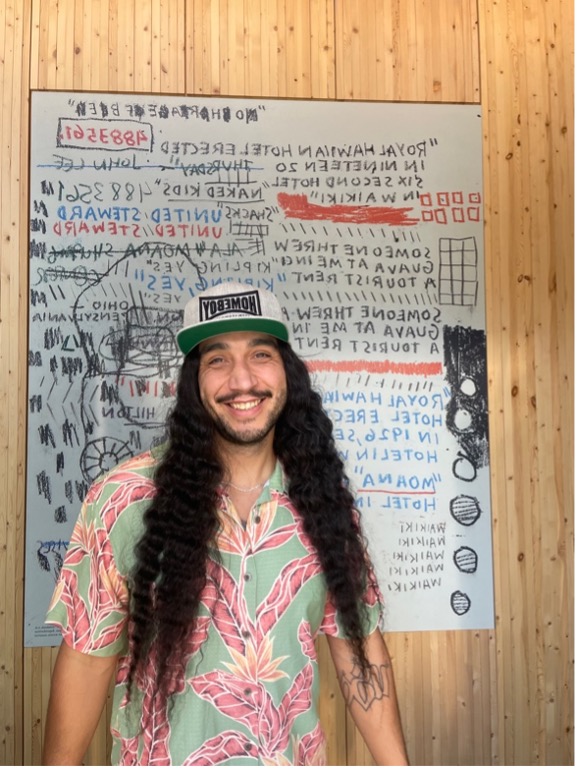

Stacy Torres
Stacy Torres is a politicized healer, cultural strategist, consultant, hearthkeeper and an experienced RJ practitioner. She has spent 20 years devoting her love and light to the most harmed in her community utilizing tools and practices that belong to us. Her work intentionally addresses the impacts of systemic oppression, historical trauma, and legacies of violence that are currently eroding our communities. She believes that body-based transformation is possible and necessary for us to develop connective tissue between our values, vision, and actions. Stacy’s role at Collective Justice has been to facilitate and hold healing spaces for participants. Her vision at CJ is to develop a legacy of changemakers, organizers, activists, healers, artists, spiritual and thought leaders in Seattle who will build power and shift the inhuman conditions of our carceral systems.
Martina Kartman
Martina Kartman is the co-founder of Collective Justice. Her work is shaped by her own experiences as a young person on various sides of harm and the criminal legal system, and by her involvement with movements for anti-violence, racial justice, and feminist abolition. She dreams of a world rooted in joy, dignity and abundance, and is committed to supporting communities most impacted by interpersonal and state violence to have access to radical, unconditional love and healing. Martina is a recipient of the UW Bonderman Fellowship, Open Society Foundation Soros Justice Advocacy Fellowship, Karin Stromberg Contribution to Social Justice, the Herring Phelps Award for Scholarly Activism, and the Meena Vashee Scholarship for Survivors. She holds a JD from the University of Washington School of Law, where she was a William H. Gates Public Service Law Scholar. She locates her political work in global solidarity with feminist anti-imperialist struggles, seeking not only the end of oppression but of the creation of liberation here and now.
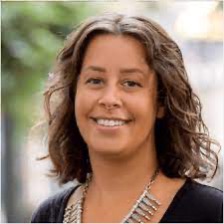

Tyra Griffith
Tyra Griffith is a dedicated Restorative Justice (RJ) practitioner deeply influenced by generations of community trauma. Her commitment lies in creating accessible healing opportunities within her community. Drawing from her own experiences and the historical context of trauma, Tyra collaborates with others to engage in restorative practices that foster healing and reconciliation. Through her work in the DAP, Tyra brings a unique perspective shaped by her understanding of the pervasive impact of intergenerational trauma, allowing her to approach healing initiatives with empathy and insight. Her collaborative efforts aim to create spaces for meaningful dialogue and transformative processes, reflecting a profound commitment to addressing historical and contemporary wounds within the community. Tyra’s involvement represents a powerful force for positive change, as she seeks to bring about healing and restoration in a community marked by deep-seated trauma.
Aaron Faletogo
Aaron Faletogo’s journey embodies resilience, growth, and a profound commitment to healing and restoration. Born and raised in West Seattle, Washington, Aaron faced early tragedy with the loss of his father to gun violence, an event that catalyzed his transformative path. Despite making choices in his youth that caused harm and resulted in a lengthy prison sentence, Aaron used this time for rigorous self-reflection and embraced restorative justice practices. Now, as a referral administrator for RCP, he leverages his lived experiences to thoughtfully pair young people who have caused harm with community navigators, drawing on his deep understanding and empathy. Aaron’s connection to his Samoan heritage and engagement in cultural practices like the Lakota sweat lodge provide him with strength and spiritual guidance, shaping his approach to healing and community support. His dedication to healing, accountability, and transformation reflects an unwavering belief in the human capacity for change, inspiring a more compassionate and restorative world.


Delia Ulima
Delia Ulima has served as the HI H.O.P.E.S. Initiative Statewide Manager at EPIC ‘Ohana since 2009. HI H.O.P.E.S. brings together youth voice, through statewide youth advocacy boards, with local and national partners to address systemic reform by improving policy, practice, relationships and outcomes for young people impacted by foster care in Hawai’i. Delia is a graduate of Kamehameha Schools and holds a B.A. in Political Science from Brigham Young University-Hawaiʻi. She earned a Graduate Certificate in Conflict Resolution, an M.A. in Pacific Islands Studies and a Juris Doctorate, all from the University of Hawaiʻi-Mānoa. Delia is an adjunct faculty member with the Spark Matsunaga Institute for Peace and Conflict Resolution at UH-Mānoa, where she teaches a Children’s Rights and the Law course. Delia serves as the chair of the Juvenile Justice State Advisory Council, sits on the Kalihi-Pālama Neighborhood Board and the Kalihi-Pālama Culture and Arts Society board. She serves on the Native Advisory Committee (Hawaiʻi Region) to the Alyce Spotted Bear and Walter Soboleff Congressional Commission on Native Children. Delia is a professional musician, was born and raised in Kaluaopalena, Kalihi and lives there with her ʻohana.
Lorenn Walker
Lorenn Walker, JD, MPH, is a Hawai’i based health educator, social scientist and licensed lawyer who studies how people learn, increase resiliency, and address trauma and social problems. Her work focuses on finding ways to systemically shift the use of the criminal legal system for addressing social problems. She directs Hawai‘i Friends of Restorative Justice and is an associate professor of practice for the College of Arts & Sciences, University of Hawai‘i at Manoa (UH), and a lecturer in law for UH’s William S. Richardson School of Law. She’s authored over 60 publications, has trained thousands, and has facilitated hundreds of restorative meetings. She is a Senior Fulbright Specialist for peacemaking and conflict management, and has been interviewed about her work by the Oprah Winfrey Network, NPR, and CNN.
